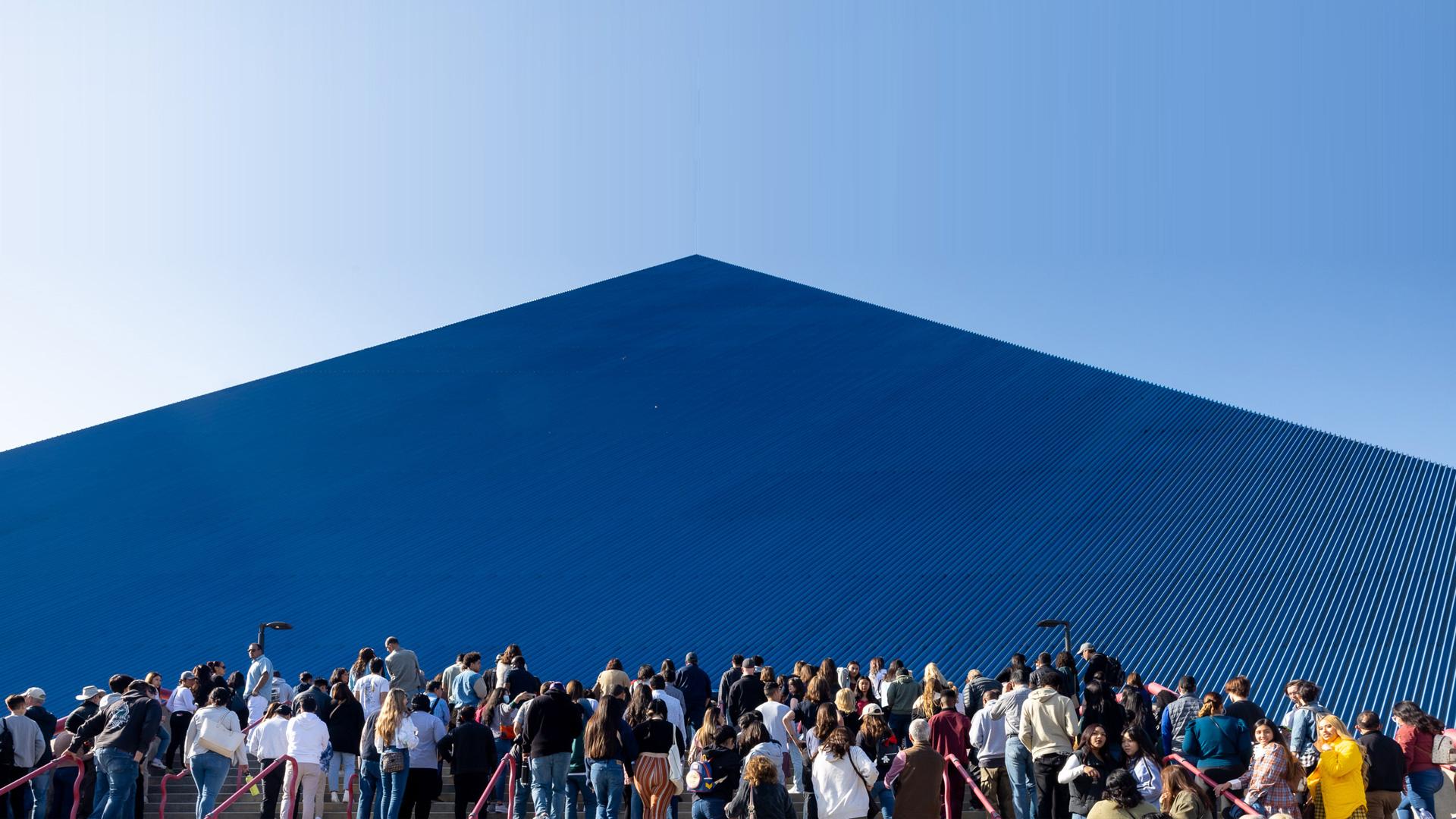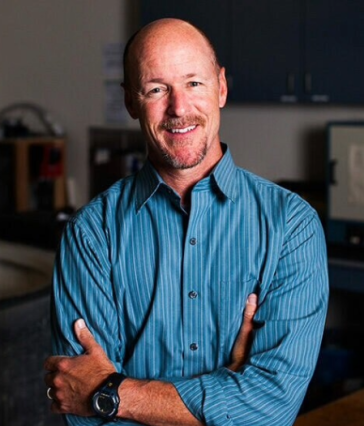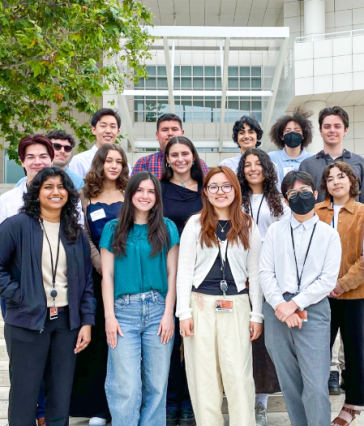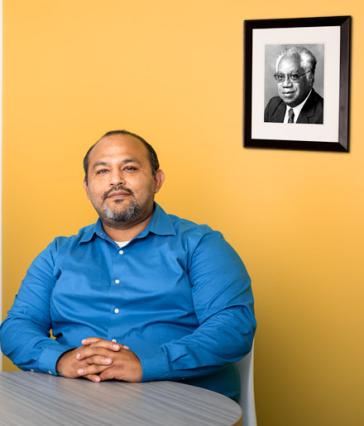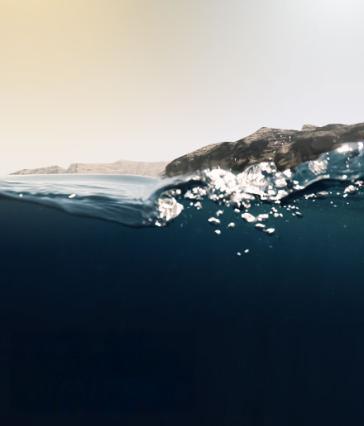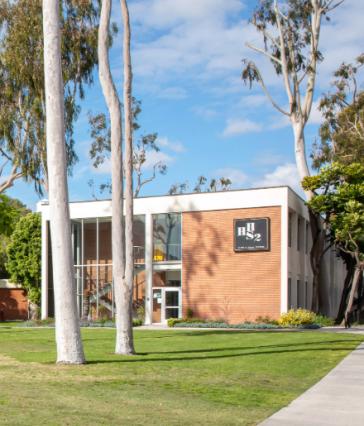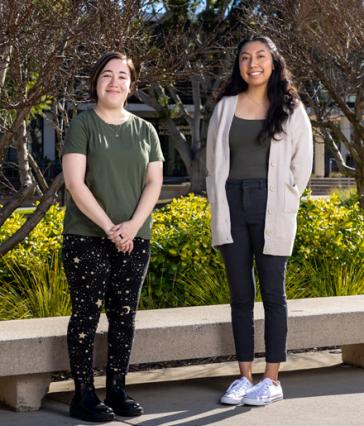49 things to love about The Beach in honor of our 75th year
Did you know that Long Beach State’s first desks came from San Quentin Prison, or that comedian Steve Martin won a top prize in the inaugural campus hootenanny? Could you have guessed that the man who crowned our 1965 Homecoming Queen also composed one of the world’s most famous Christmas songs? Or that, in 1978, students here set a Guinness World Record for the longest — wait for it — submarine sandwich?
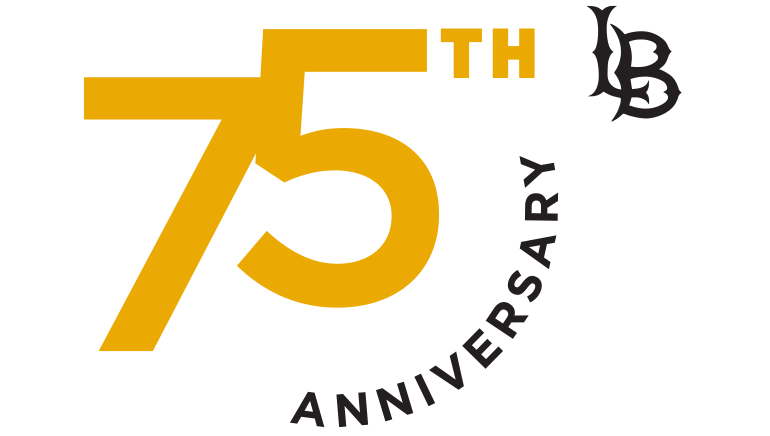
It’s been a rich, vibrant and utterly fascinating journey over the past 75 years at The Beach, and we’ve got the photos to prove it. Join us as we uncover campus lore, dive into some remarkable moments and celebrate the people who helped transform a humble college into one of the most dynamic and diverse institutions in the country. Think 49 fun facts is a lot? Trust us: We had to trim the list to get there.
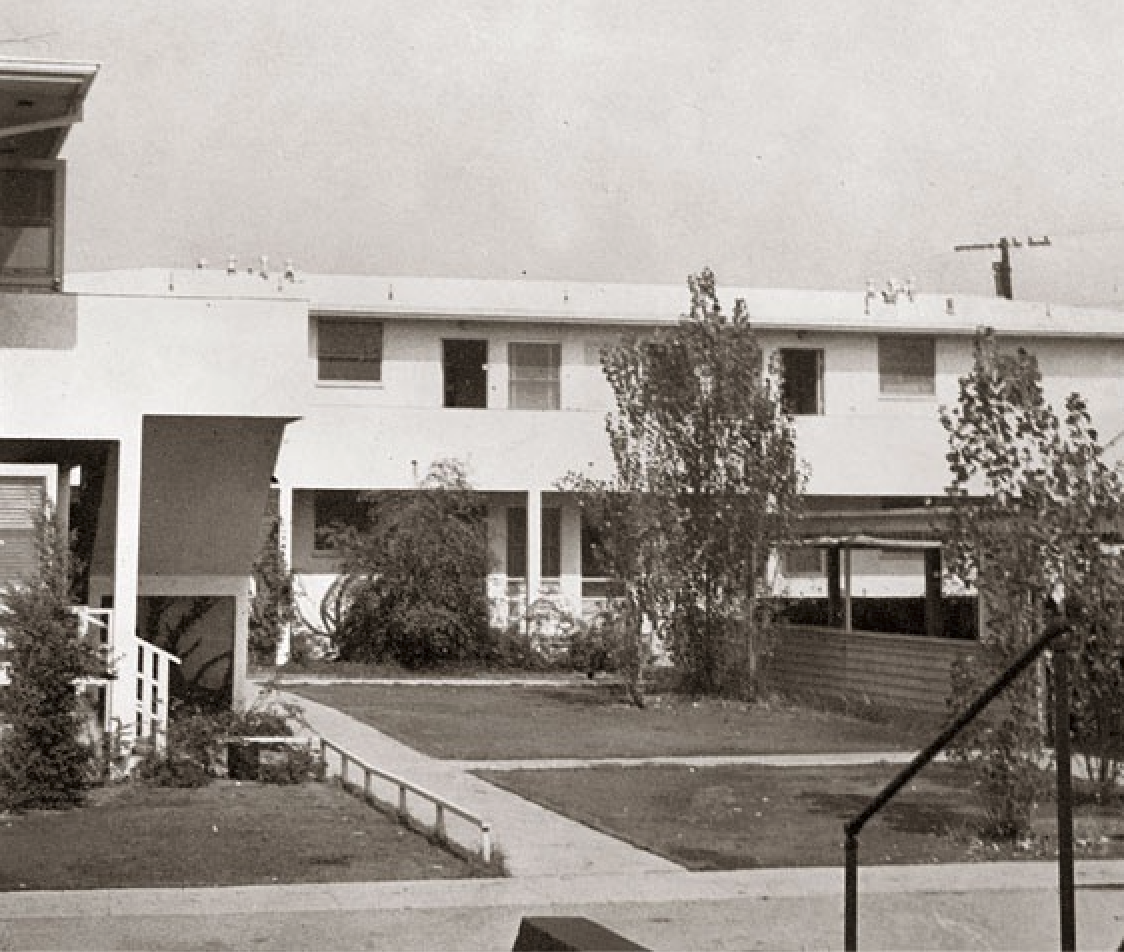
#1: Bathtubs o' Books
Opened on Sept. 28, 1949, CSULB’s first home was a converted 13-unit apartment building on Anaheim Road, in a neighborhood about a mile west of today’s campus. “Humble” would be an understatement. Classes were held in living rooms and kitchens, the president’s office was in a master bedroom, and books had to be stored in bathtubs and sinks.
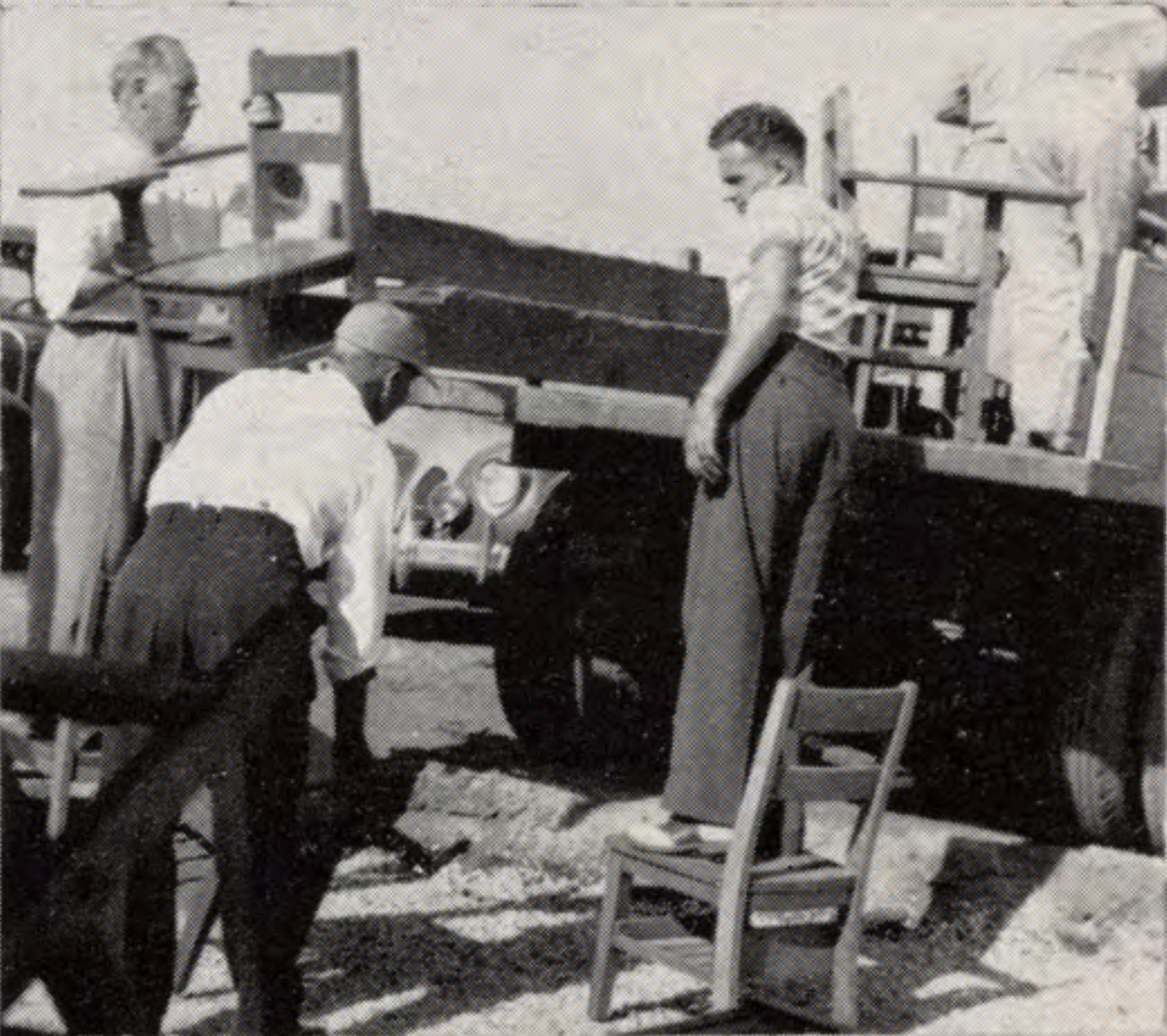
#2: Prison-Made Desks
CSULB's first set of furniture was made by inmates at San Quentin State Prison as part of a vocational training program. Designed to teach inmates practical skills, the program supplied furniture to many state-affiliated institutions but was discontinued in the 1960s.
#3: Evolution of a Name
The college was known as Los Angeles-Orange County State College for only one year before evolving into Long Beach State College. Twelve years later, to coincide with major campus changes, it was renamed California State College at Long Beach. And in 1972 — after gaining university status — it received its fourth and final name: California State University, Long Beach.
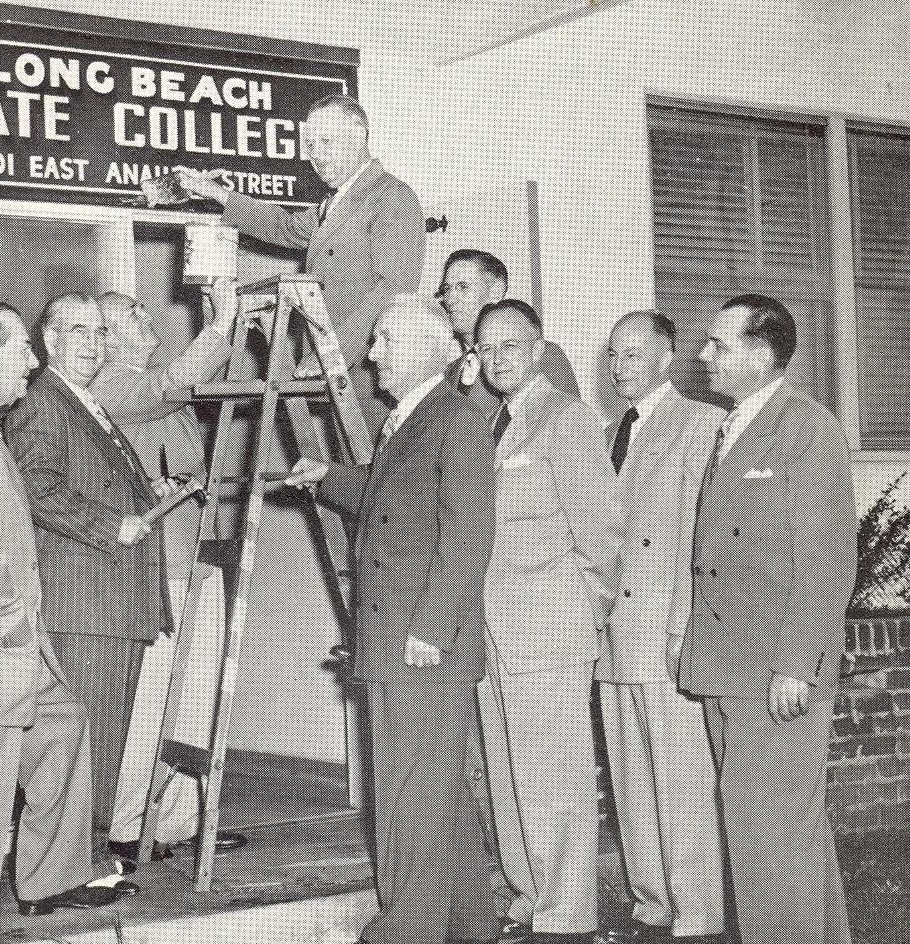
#4: Mr. President
Six decades before Americans elected Barack Obama as the first Black president of the United States, Cal State Long Beach made its own history when Roger Bryson was elected president of the student council in 1949 — making him both the first president and the first Black president.
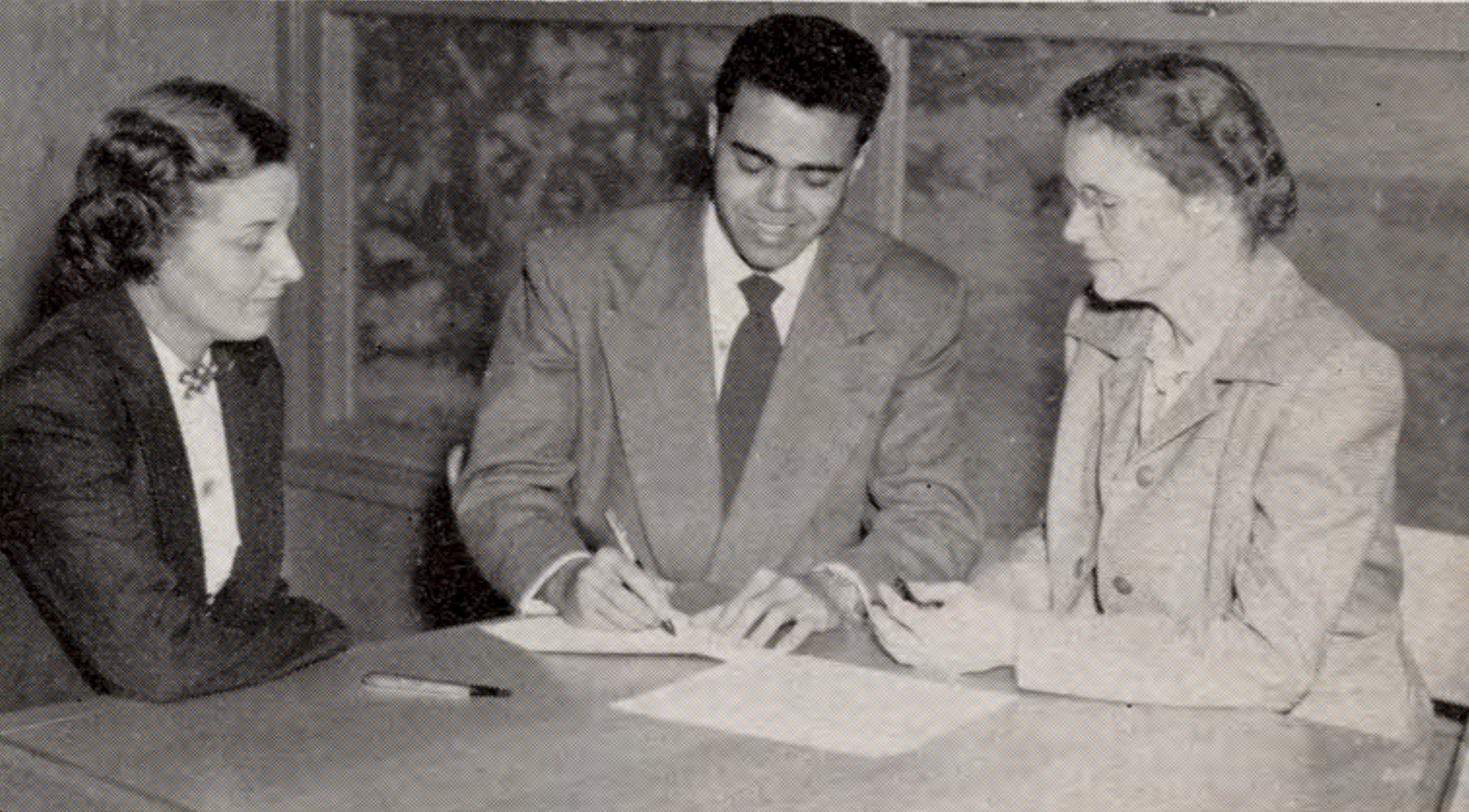
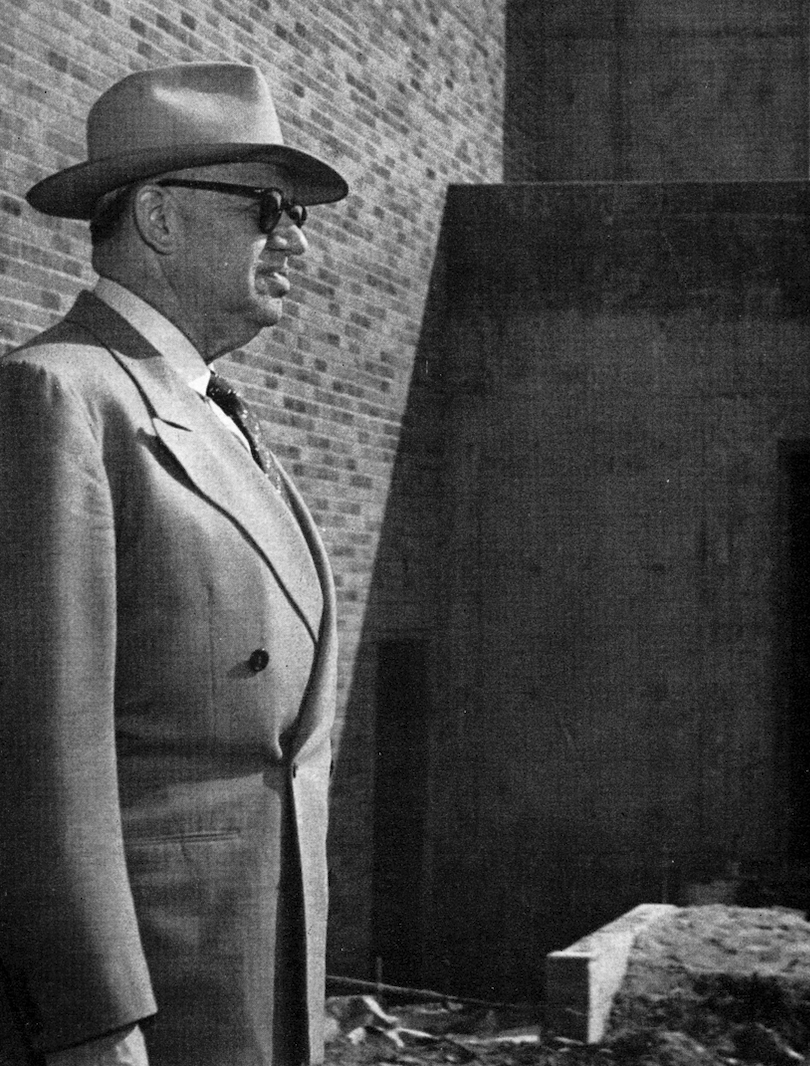
#5: Dr. Pete’s Legacy
Known as “Dr. Pete,” inaugural President J. Victor Peterson traveled the country to recruit professors from prestigious schools, including Harvard, Yale and Columbia. By 1959, 70% of CSULB faculty held doctorates, compared to the national average of 54%.
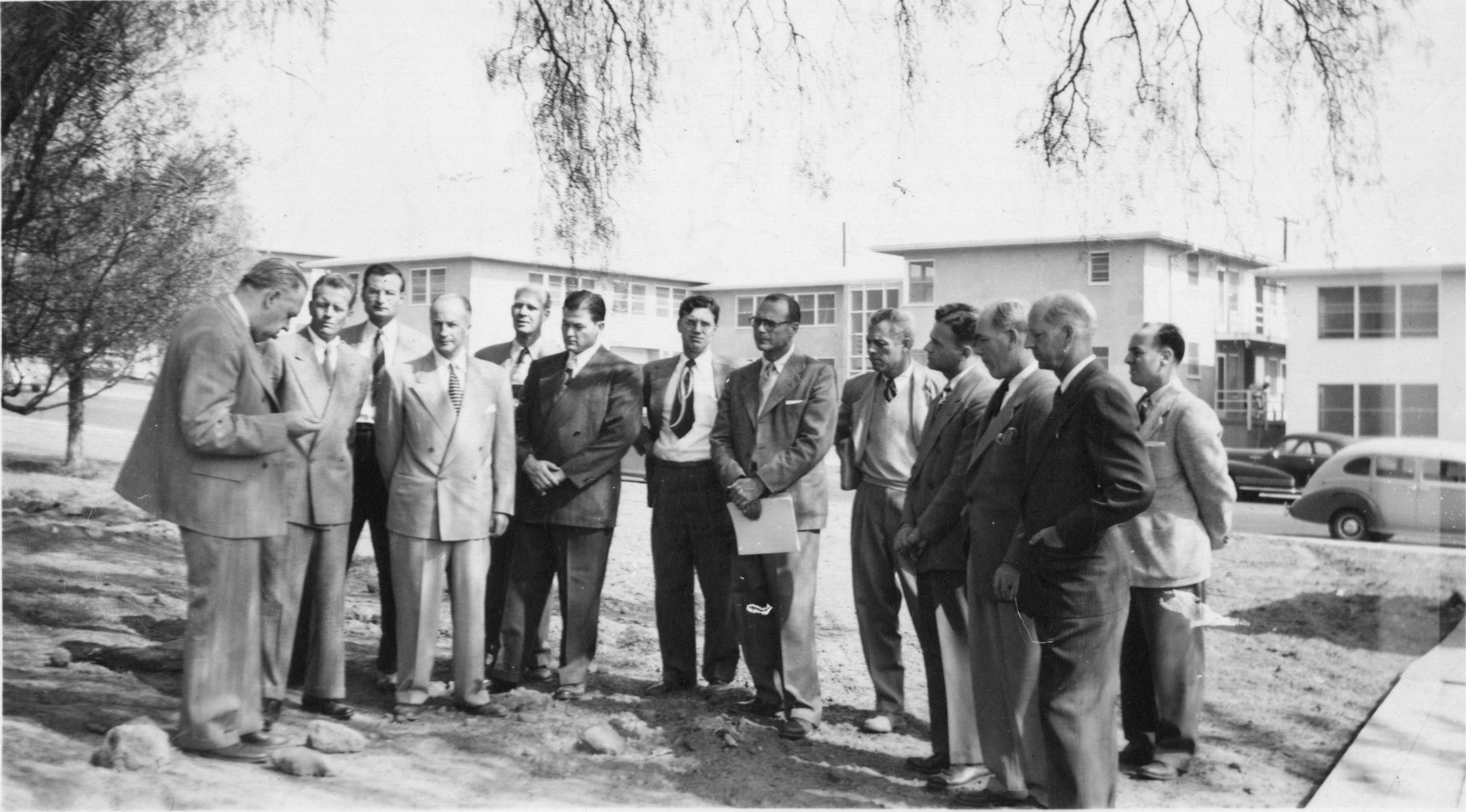
#6: Under a Pepper Tree
Due to limited indoor space in the “apartment-college,” assemblies were held in the small courtyard or at the laundry area-turned-student cantina. The photo above shows President Peterson, left, holding the first faculty meeting under a pepper tree with the apartments in the background.
#7: Oh, Hello
Before it became known as Student Orientation, Advising, and Registration (SOAR), CSULB's welcome event was called “Hello Day.” In addition to food and dancing, the festivities offered a chance for new students to socialize. In 1949, the event featured a skit in which professors dressed as third-graders and performed in an alley — the closest thing they had to a theater space.
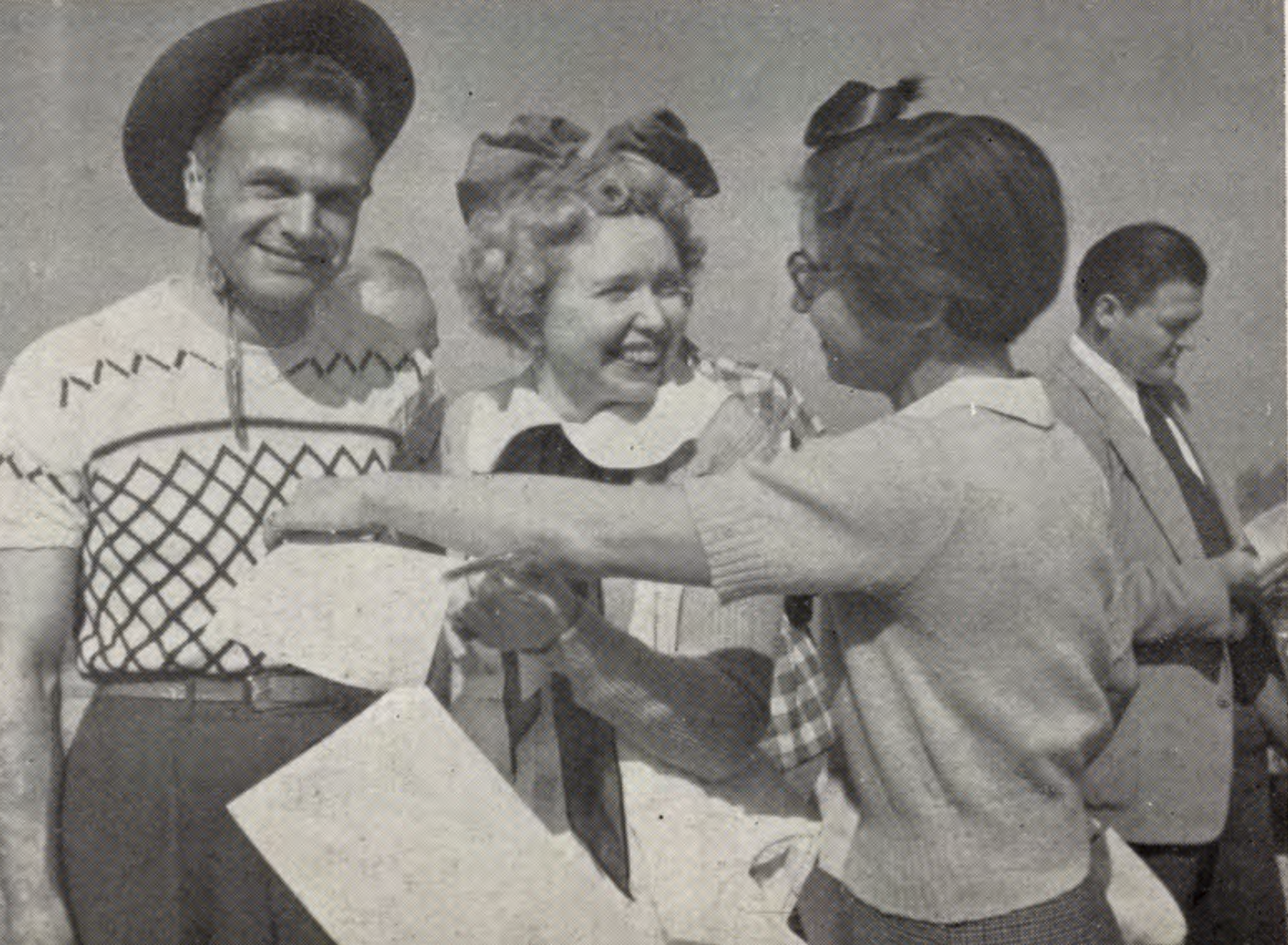
#8: First in Line
Education major Mariam O. Game ‘50 was the first of a reported 169 students to register for classes at a fruit stand on Pacific Coast Highway. A transfer student from Long Beach City College, Game chose from a schedule of 28 classes and paid $12.50 per semester.
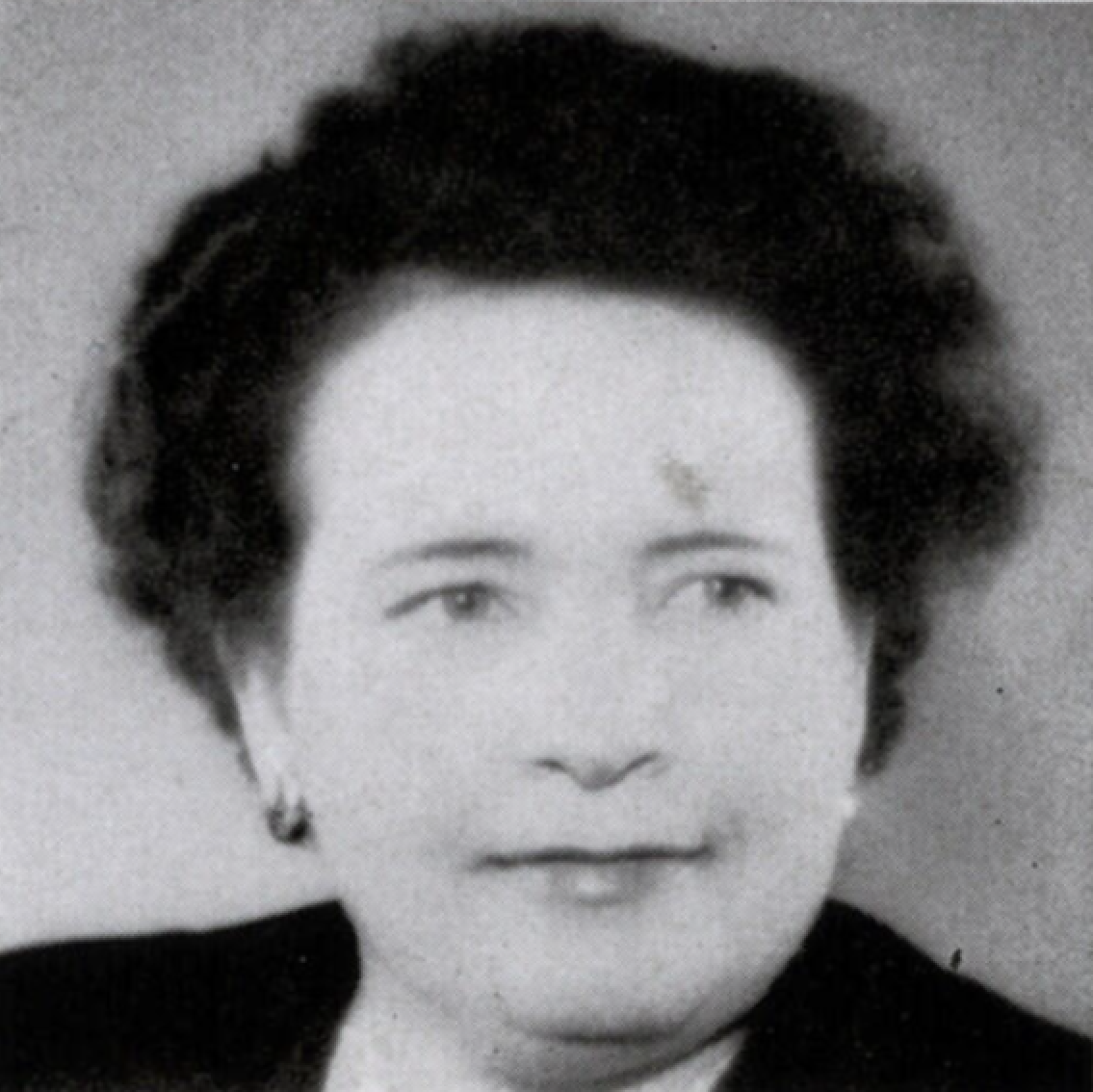

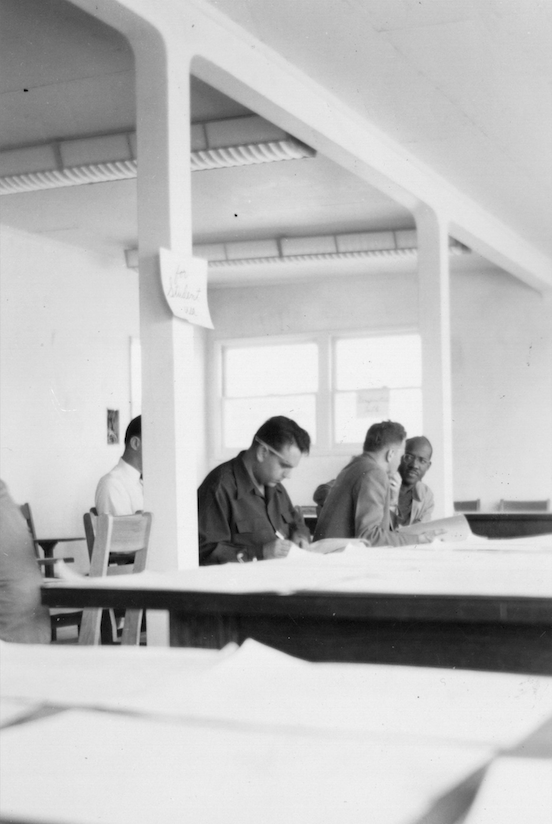
#9: Soldiers to Students
In CSULB’s early days, nearly all of its male students were World War II veterans whose studies had been interrupted by the war and who were attending college under the GI Bill. Today, Veterans Services continues to play a vital role in smoothing the transition from military service to academic life.
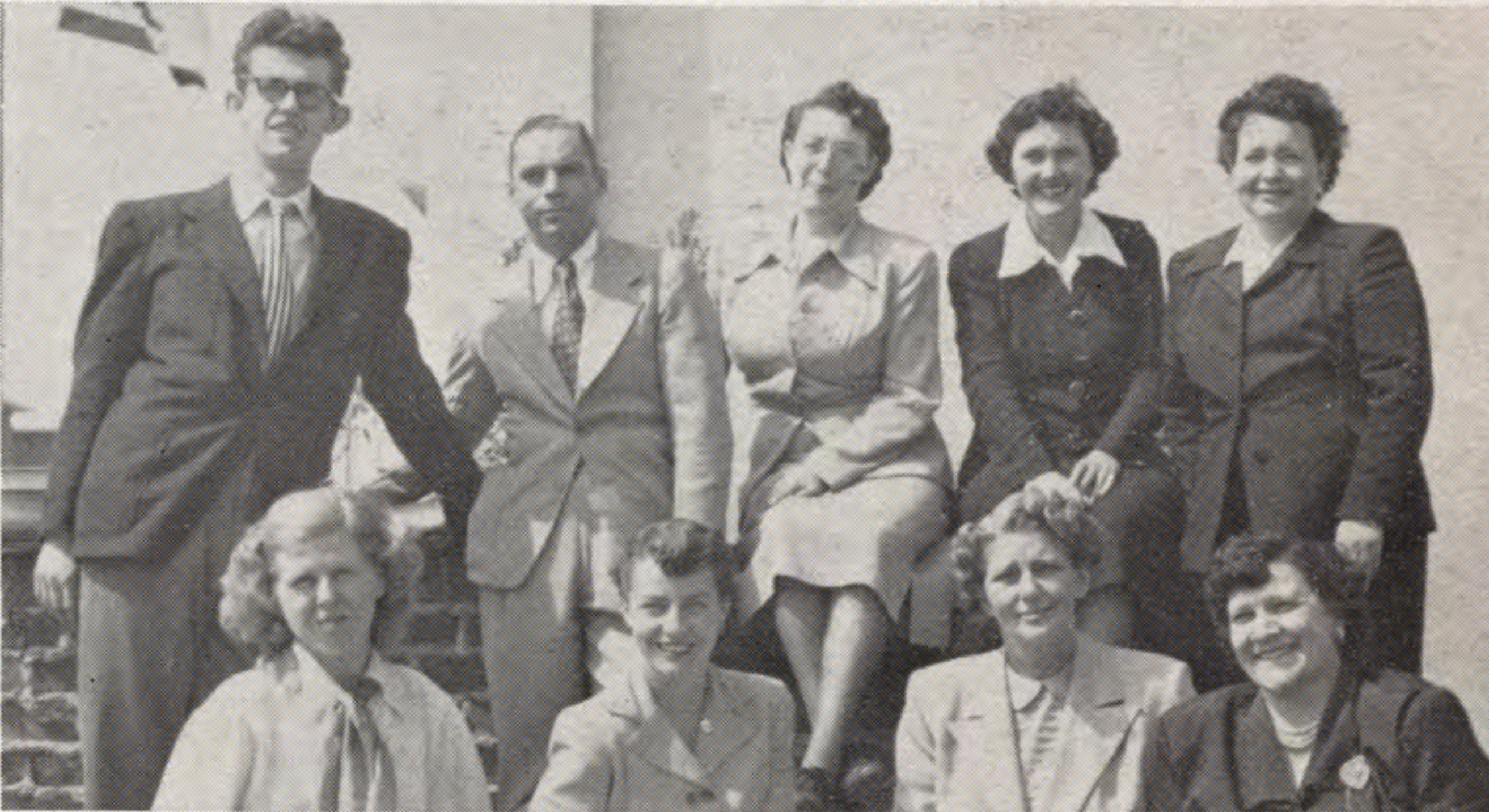
#10: 'On the Ball!’
By the time CSULB’s first graduating class of 23 students crossed the stage at Hughes Middle School in June 1950, they already had formed CSULB Alumni, which today boasts more than 400,000 members. “Not the sort to put things off until the last minute,” read a story in the Press-Telegram under the headline “On the Ball!”
#11: 'Most Beautiful Campus’
With the help of a deed from the state of California, the “Little College That Could” obtained a $20 million, 322-acre tract of land that had most recently been used as a sheep and rabbit pasture by Rancho Los Alamitos. “The state is now in possession of one of the most beautiful and best located campuses in the entire country,” President Peterson wrote in 1951.
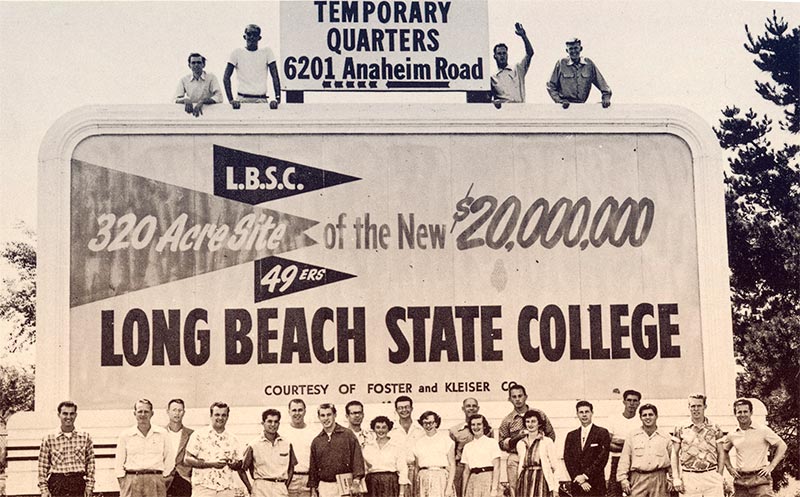
#12: Building Frenzy
The student body grew 500% to 1,100 students in Long Beach State's first 12 months, far outpacing construction efforts. One student quipped that it was “like trying to study at a carpenter’s convention" — a sentiment that continued well into the next decade as builders tried to keep up with soaring enrollment. By 1959, the university had grown to 10,000 students.
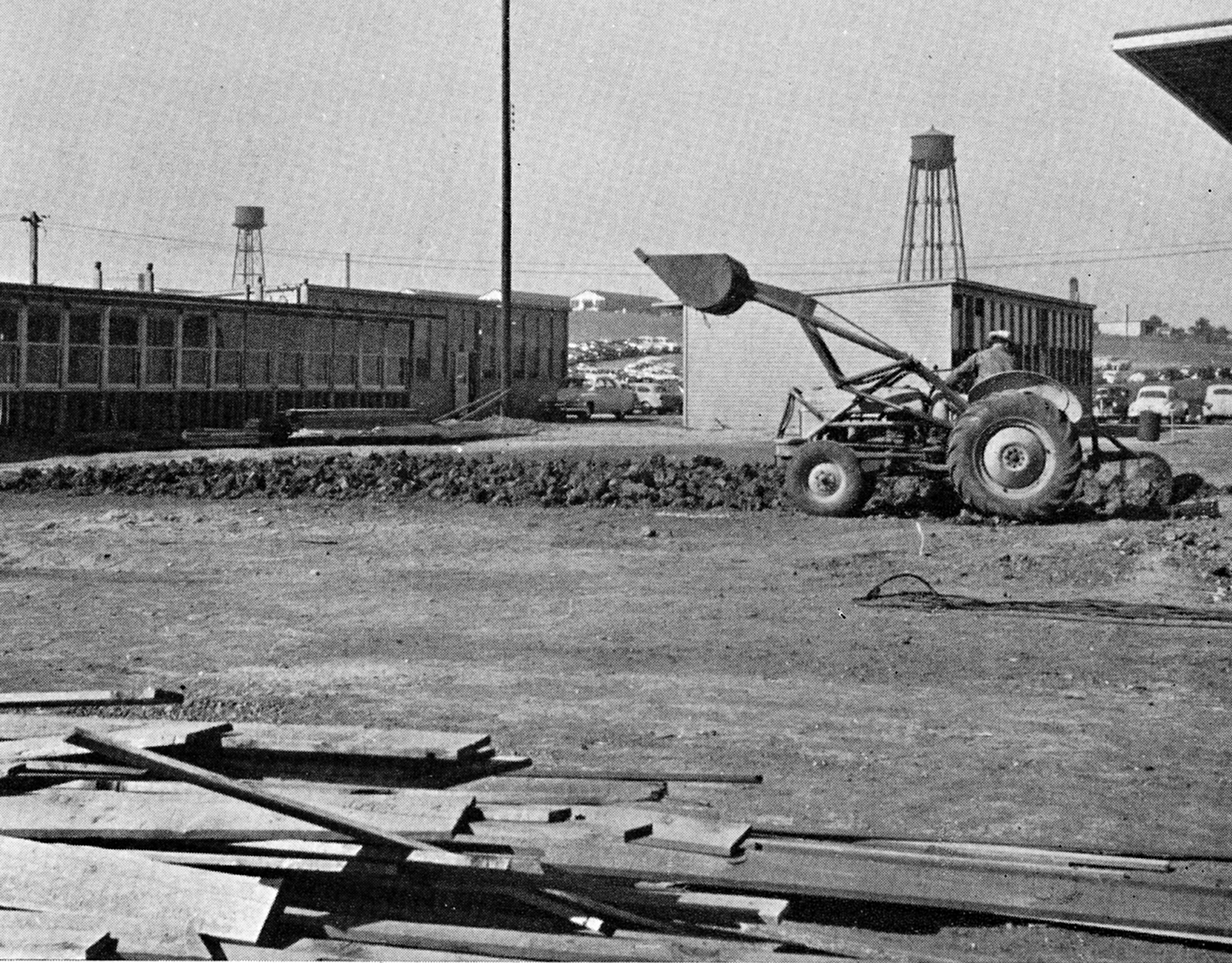
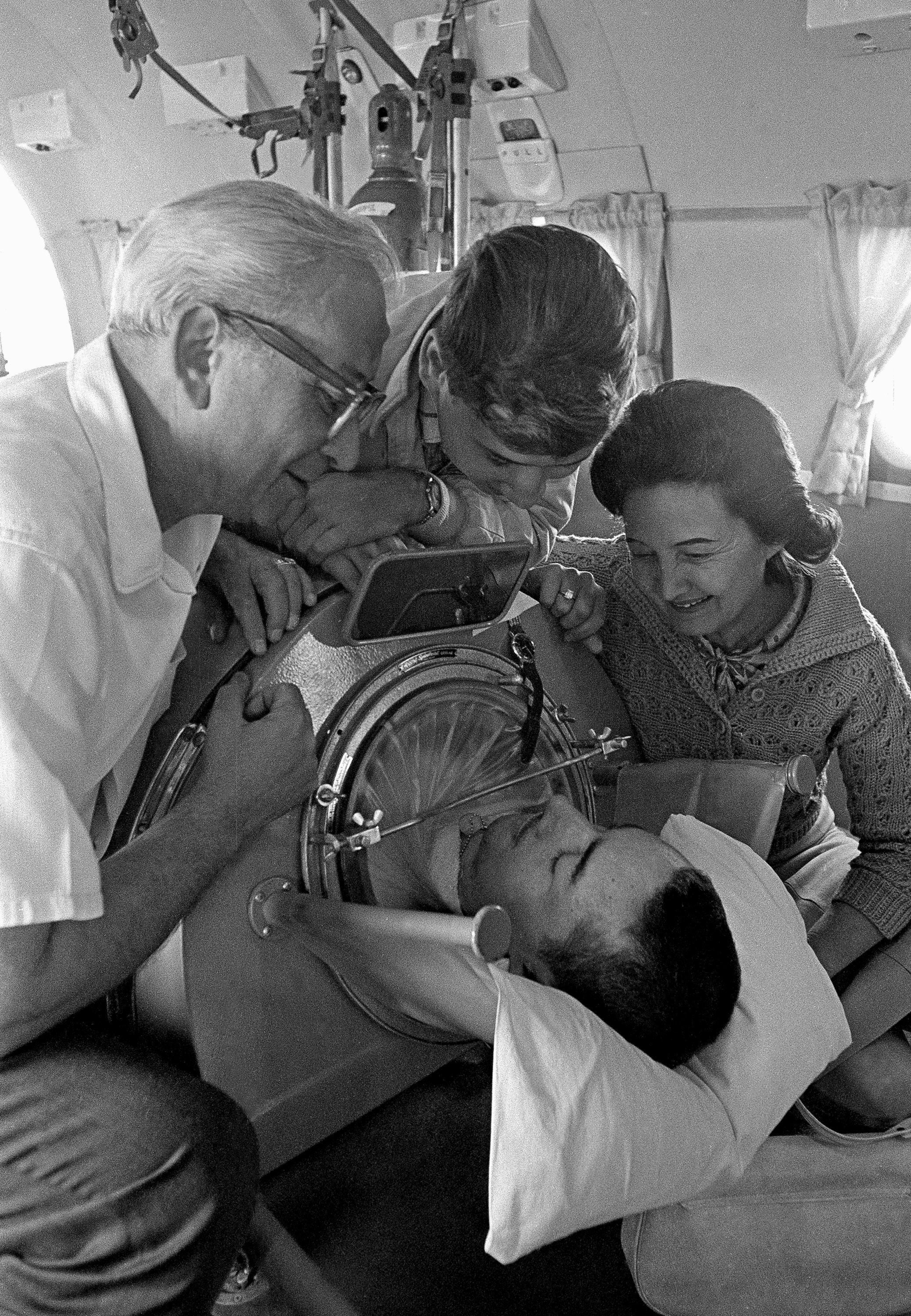
#13: Studying in an Iron Lung
In 1957, 18-year-old Bob Rubin, paralyzed by polio at age 15 and unable to breathe for longer than 10 minutes outside an iron lung, attended classes from a room at Downey Hospital. Using a phone line, Rubin attended Long Beach State for two years before finishing his psychology degree in Denver. In 1964, as pictured above, his family bid him farewell as he left for his first job in San Jose via Air Force jet.
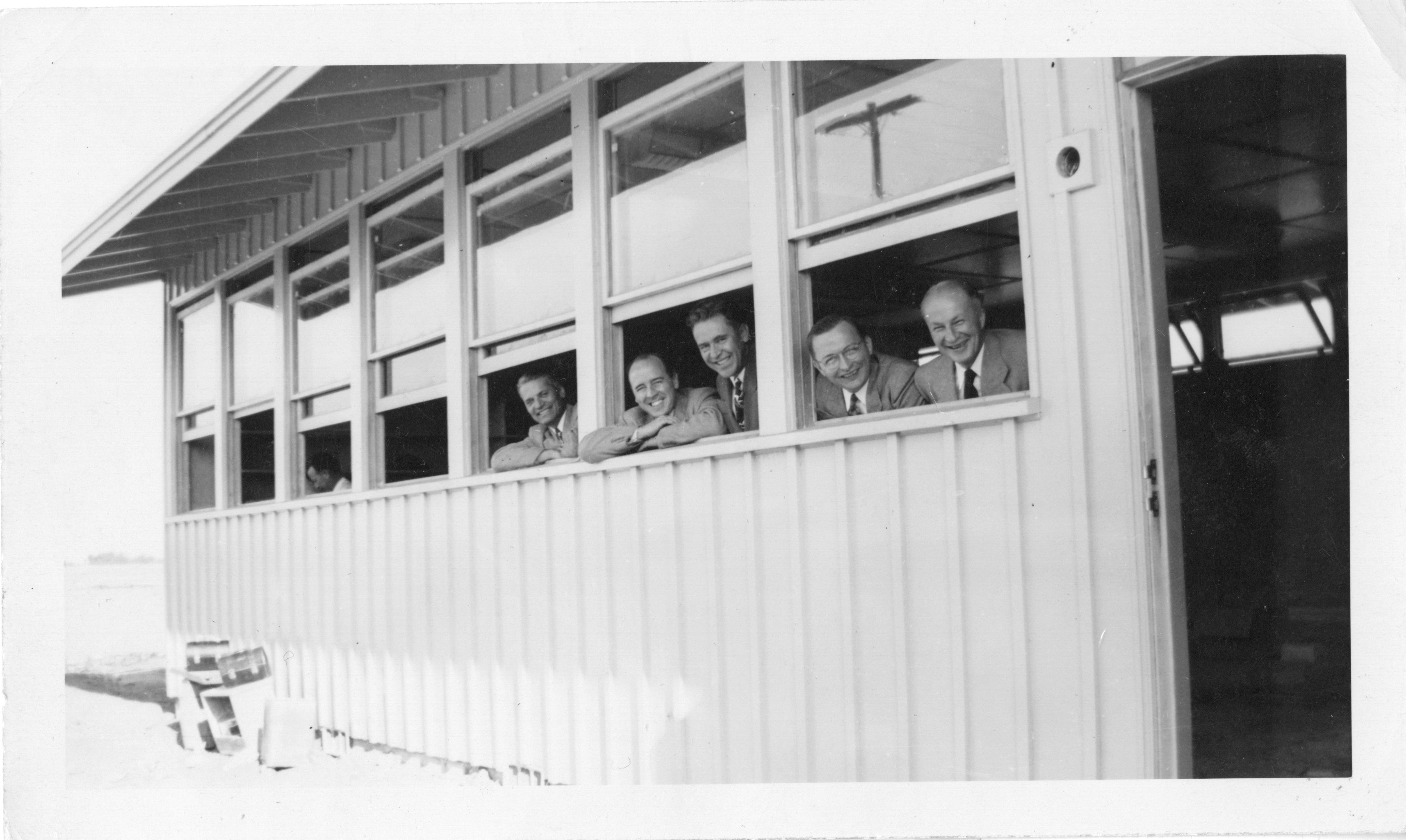
#14: Library on the Move
The first University Library was a 25-by-35-foot wooden shack, which was moved to the new campus on a flatbed truck. The library shelves were so packed with books by that point that not one fell during the bumpy ride.
#15: Our First Olympian
Beach Athletics has produced a roster of incredible athletes, many of whom have gone on to have professional sports careers and compete in the Olympic Games. The university's first Olympian was diver Pat McCormick who won a gold medal at the 1952 Games in Helsinki. Since then, 265 Olympians from Long Beach State have collectively brought home a total of 47 medals for the United States. In 1976, 16 athletes competed in the Olympic Games — the most from any American university that year.
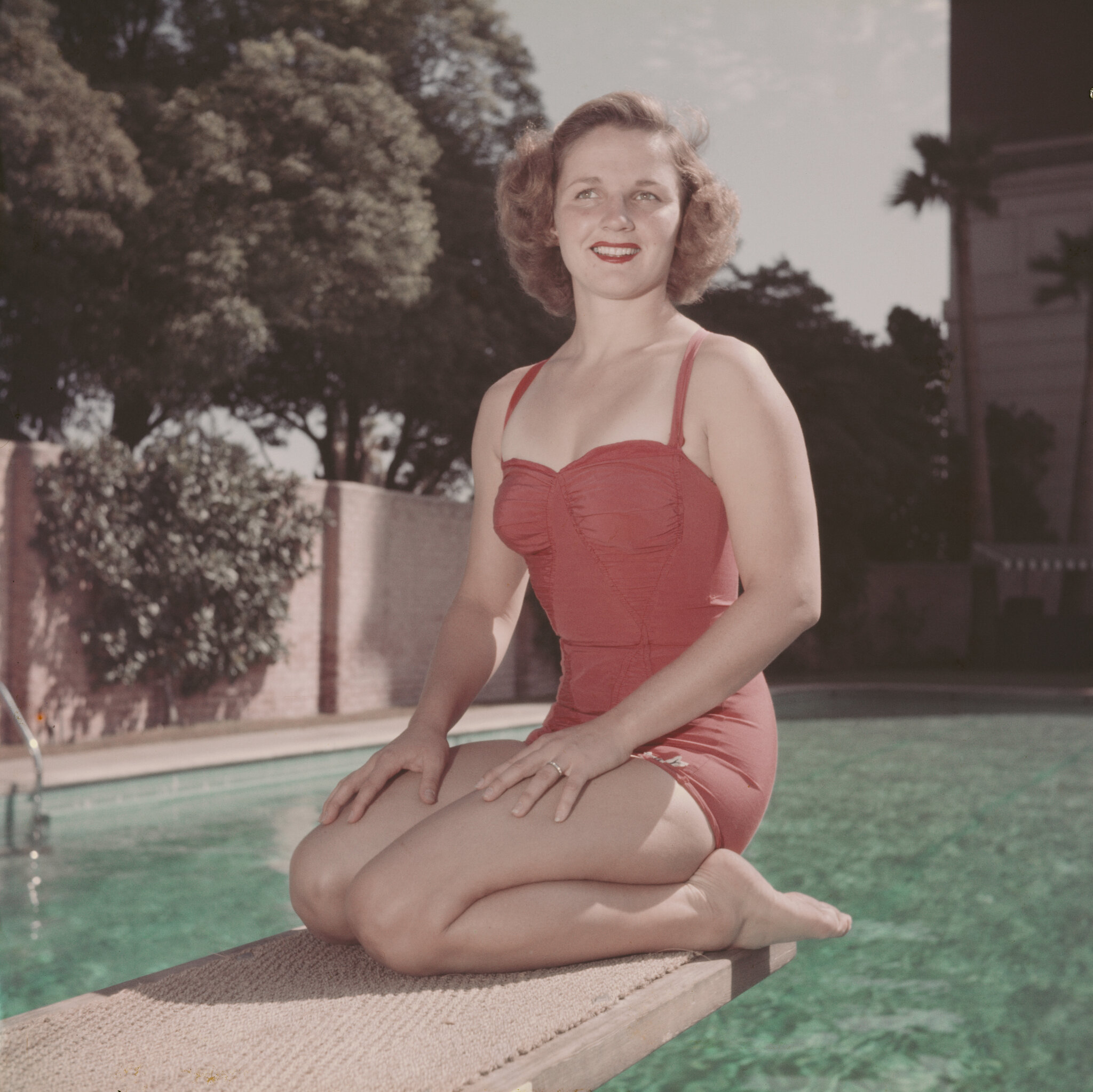
#16: Parking Woes
Parking was especially chaotic in the early years. During rainstorms, cars would slide downhill, causing muddy collisions and driverless fender benders, sometimes even stranding students and canceling exams.
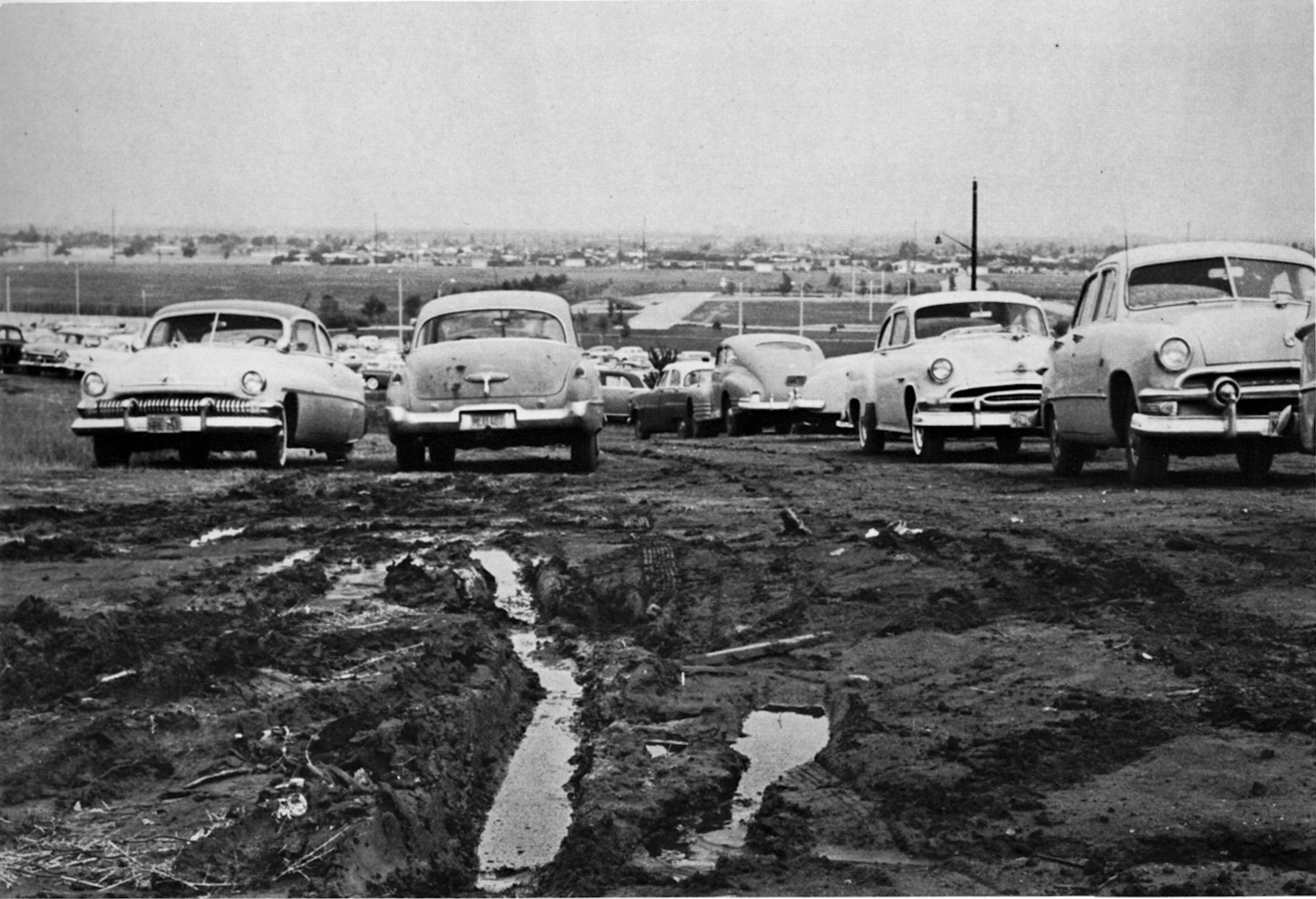

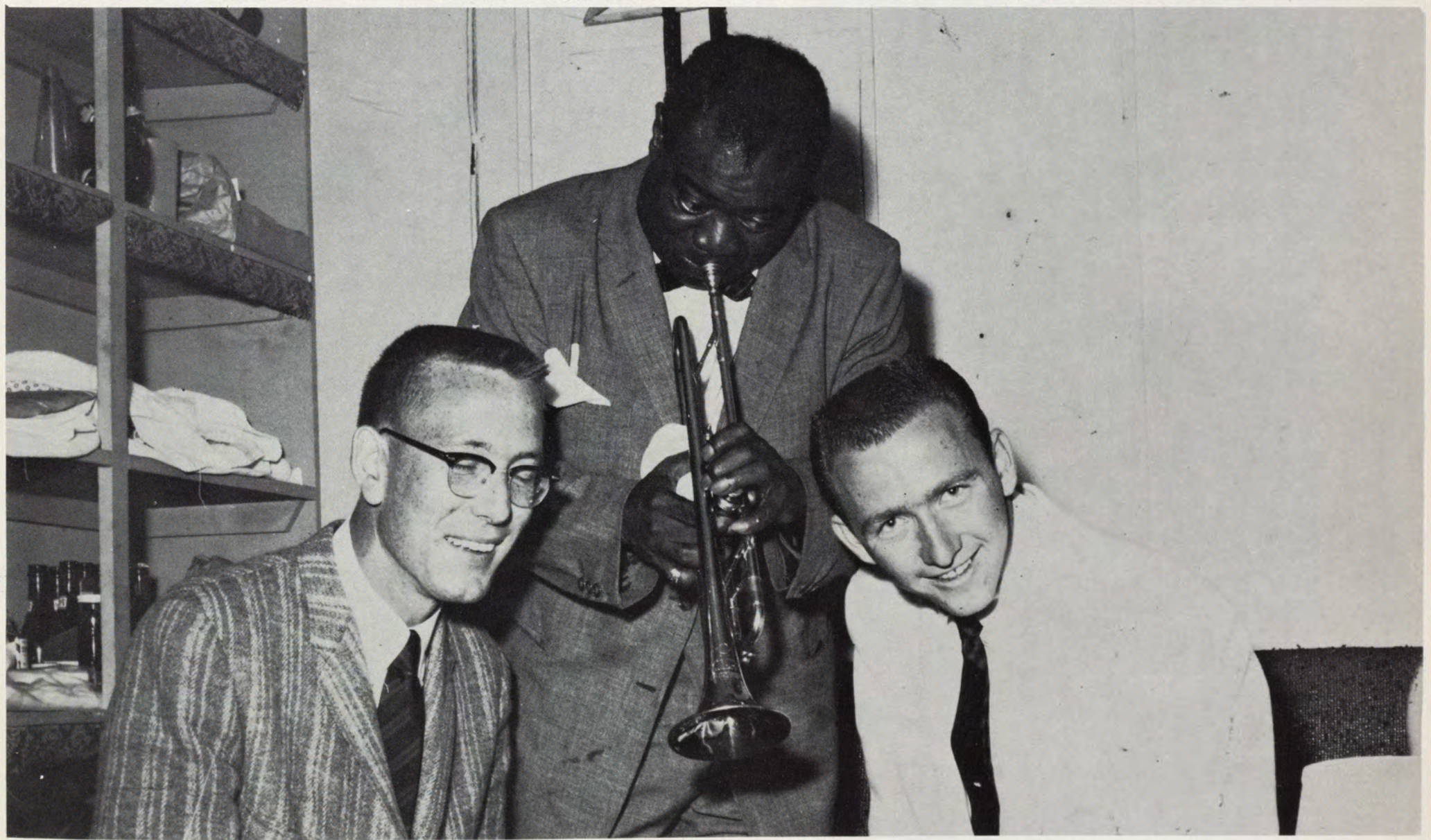
#17: Satchmo in the House
The “Evenings on Campus” series at CSULB had a banner year in 1959 when both jazz legend Louis “Satchmo” Armstrong and Shakespearean actor Sir John Gielgud performed. Armstrong’s concert drew 2,500 people to the Men’s Gym — a new record for a student-sponsored event.
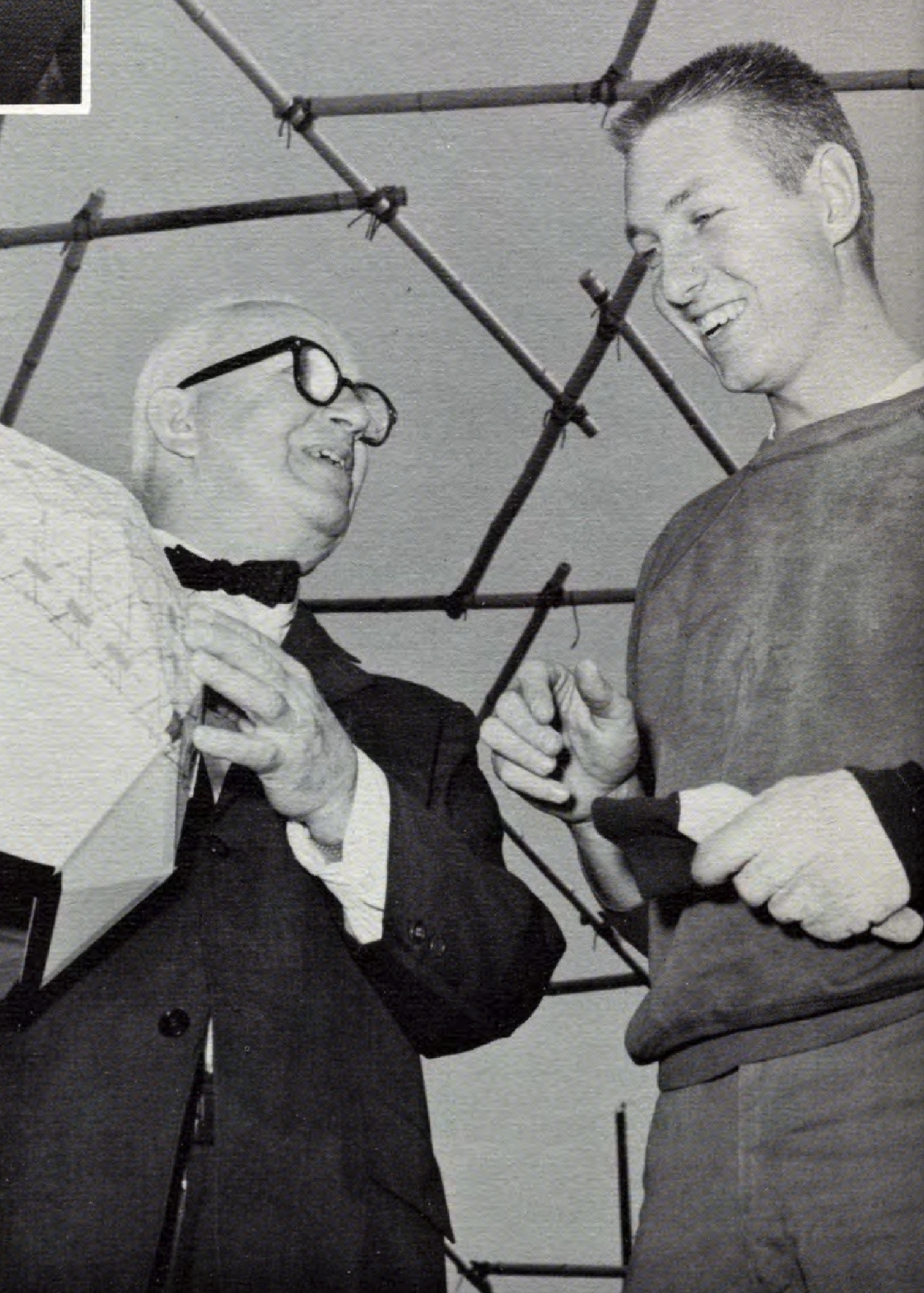
#18: Bucky's Dome
Visionary architect and geodesic dome inventor R. Buckminster "Bucky" Fuller spent six days at CSULB in 1961, guiding civil engineering students and faculty in building a bamboo dome. After completion, the dome "wandered" the campus, popping up in parking lots, near dorms and outside the cafeteria. Years later, students would build their own geodesic dome on campus, and Bucky would visit CSULB once more, just six months before his death, in 1983.
#19: Puvungna Sacred History
Prior to 1784, CSULB's campus spent thousands of years as an ancient village site and burial ground for indigenous people. Known as Puvungna, the site is believed to be the birthplace of Chinigchinich, an important spiritual figure in Gabrielino-Tongva creation narratives. The land has permanent legal protections.
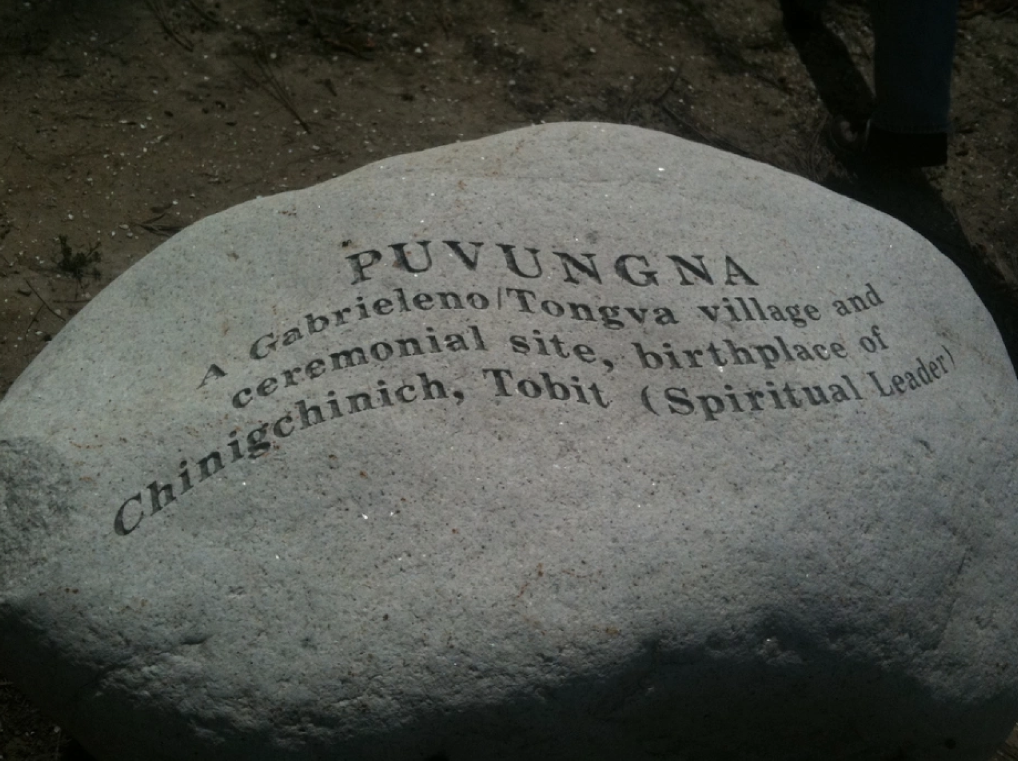
#20: Social Activism
In 1961, CSULB symbolically offered admission to Black civil rights icon James Meredith after his rejection from the all-white University of Mississippi. That move kicked off a long history of social activism at The Beach. Angela Davis, pictured below, is among the countless activists and politicians who have raised their voices on our campus.
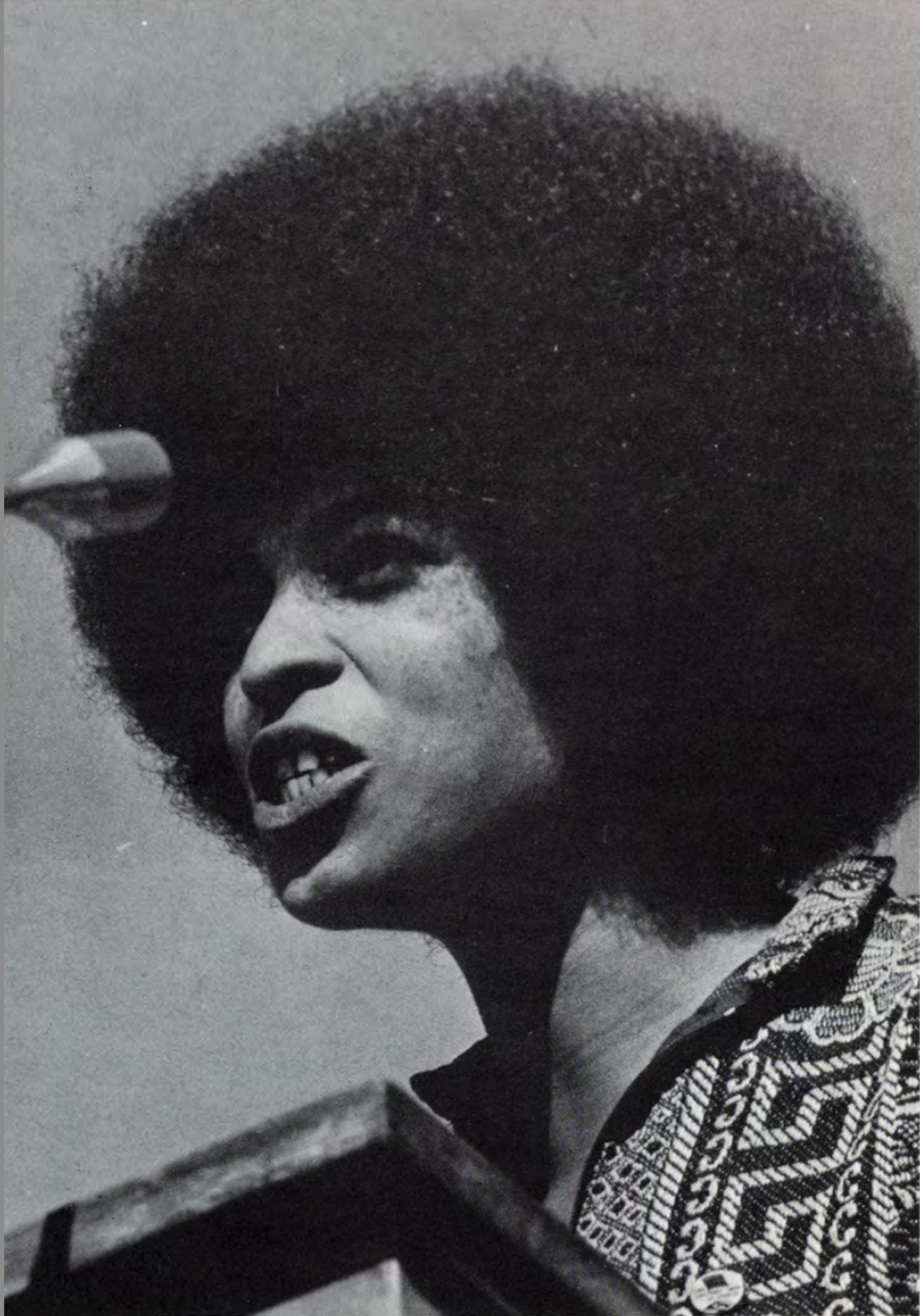
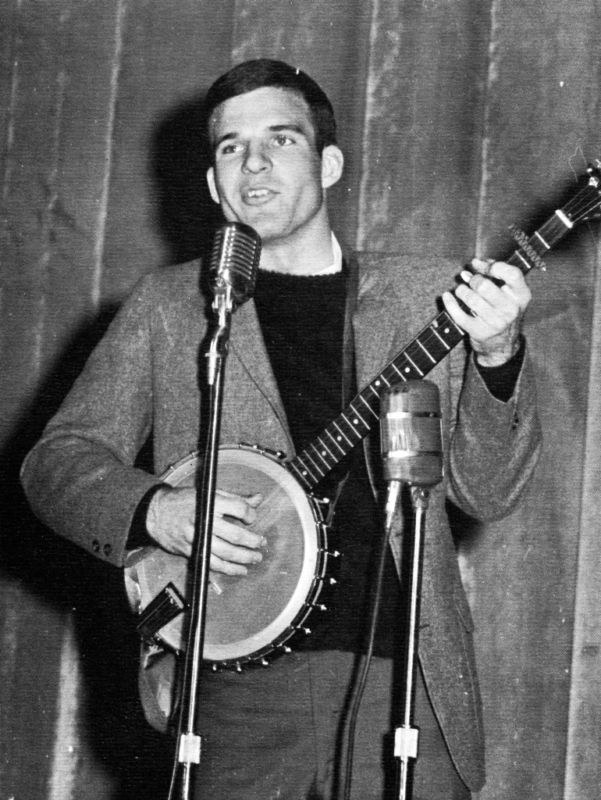
#21: Steve Martin’s Banjo
In 1965, the Sigma Pi fraternity replaced its annual barbershop quartet contest with a hootenanny. Winning first place in the professional division was a black-haired, banjo-playing Steve Martin, referred to in a yearbook as "the talented Steve Martin." Martin did not finish his studies but received an honorary degree from CSULB in 1989.
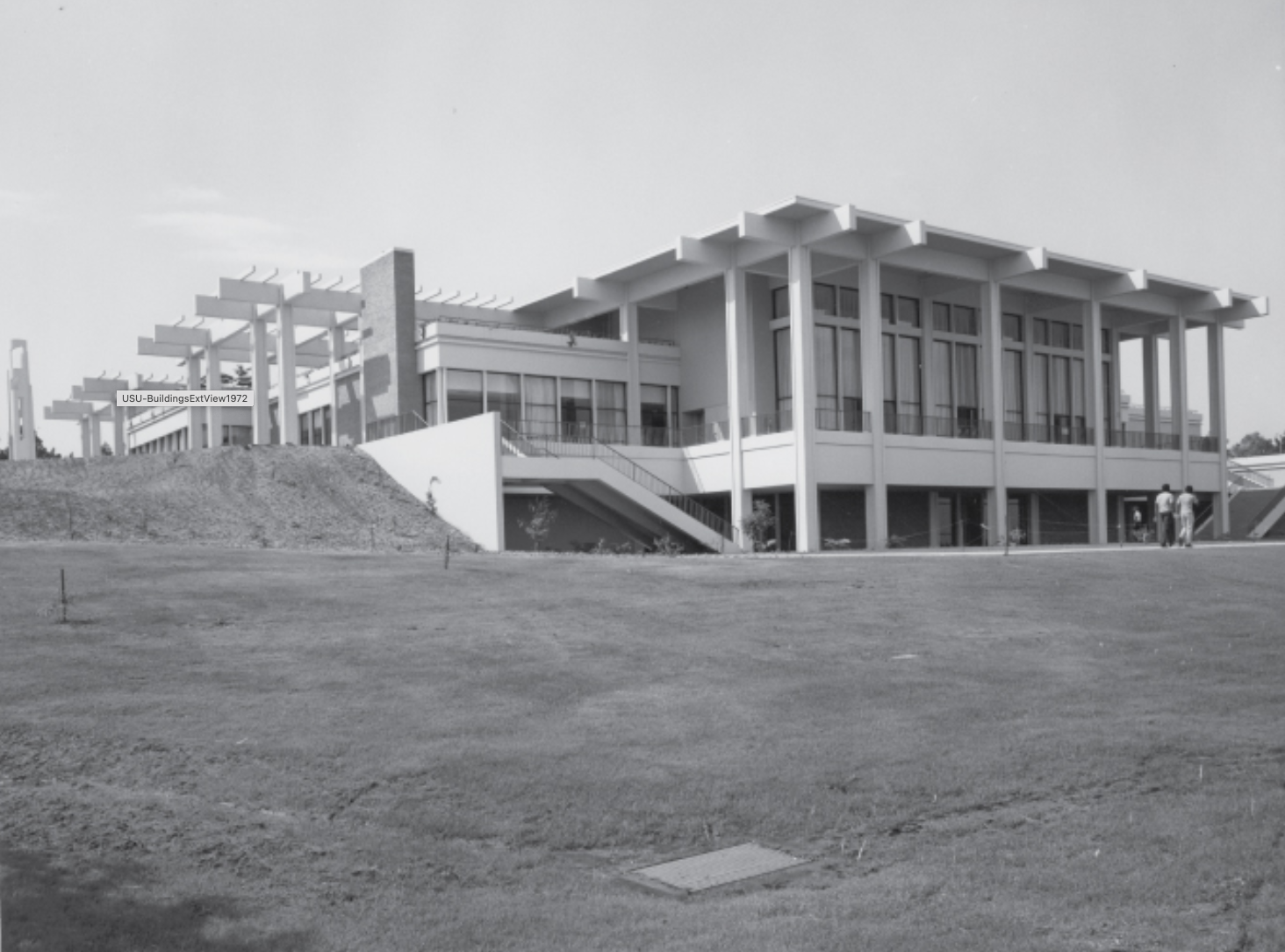
#22: Designer Campus
Renowned mid-century architect Edward Killingsworth oversaw the design and renovation of more than 60 campus buildings over four decades, calling the project the “joy of [his] life.” Killingworth shaped the cohesive design of the campus and personally designed several buildings, including the University Student Union, which was cleverly built into the existing hillside.
#23: Famous Symposium
Long Beach State's Art Department made history when it hosted the 1965 California International Sculpture Symposium. Artists from around the world collaborated with industrial partners to create nine groundbreaking sculptures. It was the first event of its kind in the United States. The so-called Art Park has grown to more than 20 works of art.
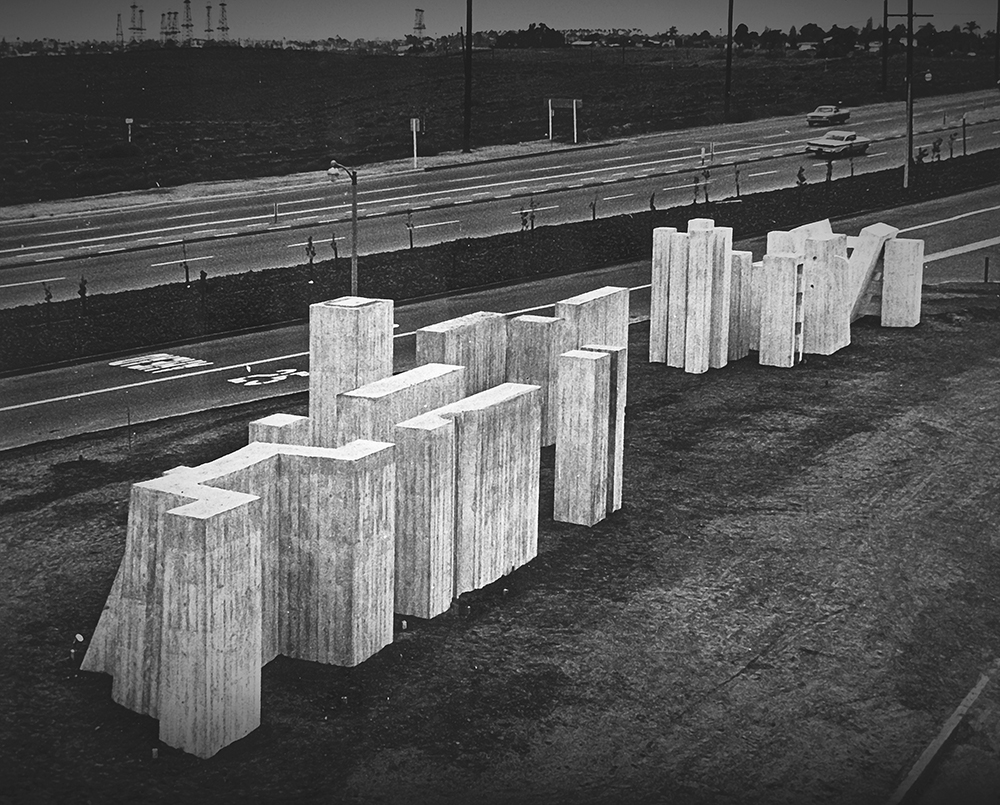
#24: 'Jaws' Inspiration
Donald Nelson, founder of CSULB’s world-renowned Shark Lab, blazed new trails in shark research in 1966 by creating the SOS II, an underwater camera in the general shape of a fish that allowed Nelson to observe sharks without disturbing them. His work advanced marine biology and conservation efforts and even inspired the character of marine biologist Matt Hooper in Steven Spielberg's "Jaws."When Nelson retired in 1998, he handed the reigns to Chris Lowe.
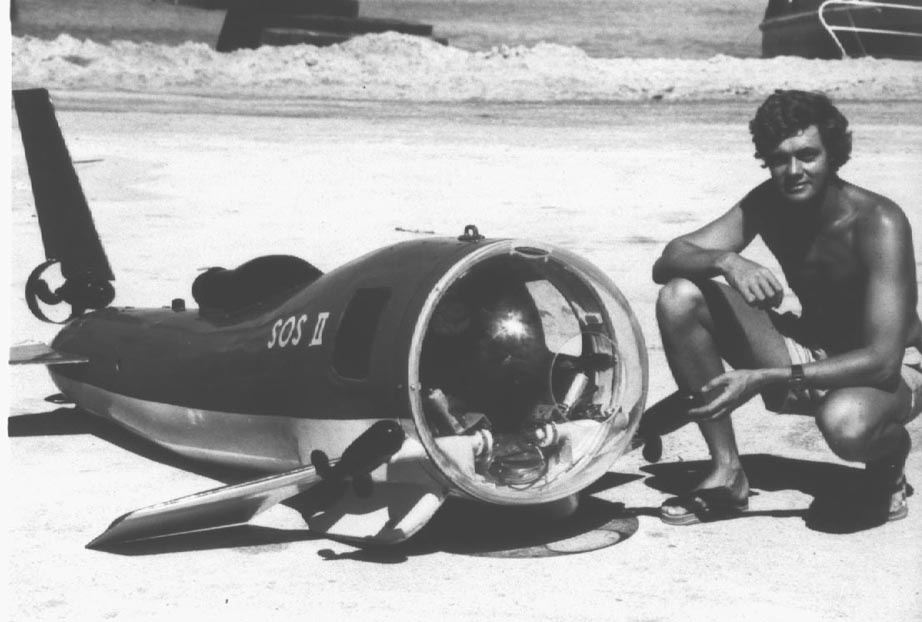

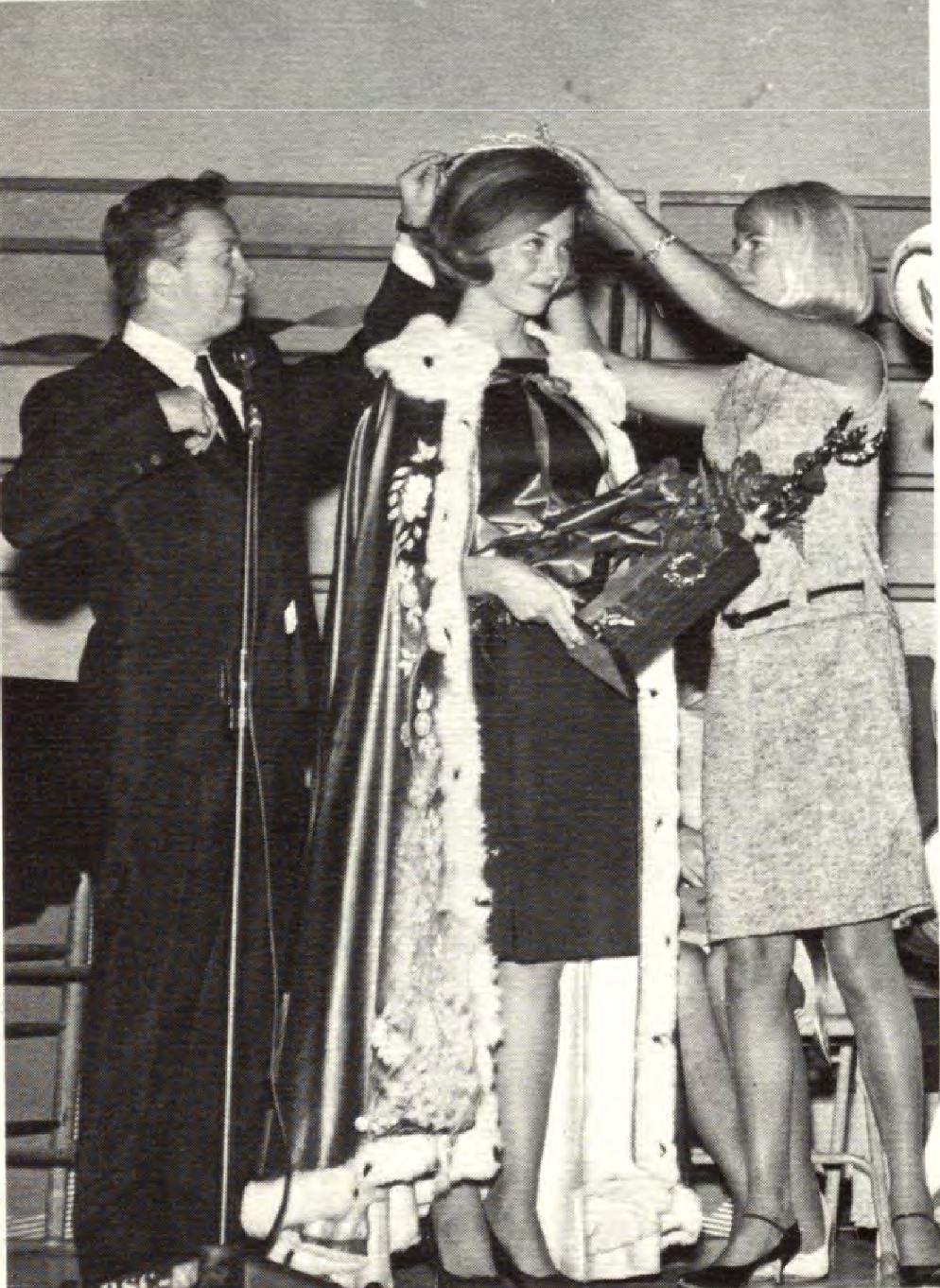
#25: Mel Tormé at Homecoming
Jazz icon Mel Tormé, best known for co-writing "The Christmas Song (Chestnuts Roasting on an Open Fire)," crowned Teri Taylor ‘65 — a Long Beach native and Delta Gamma sorority member — as CSULB’s 1965 Homecoming Queen. Later, he performed for students, singing his own compositions with the Dave Pell Octet.
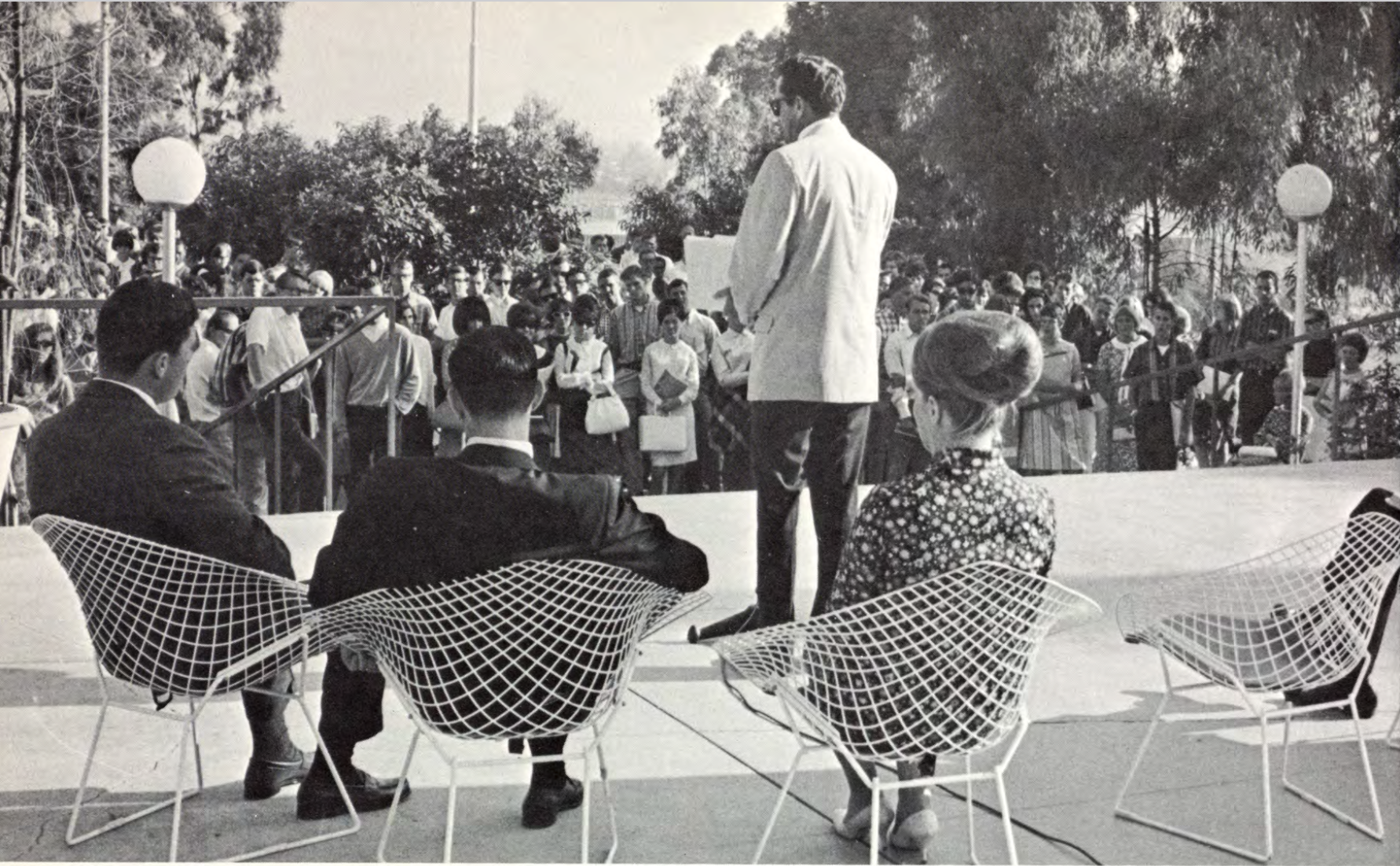
#26: Chairs Worth Stealing
In 1965, CSULB invested in original Harry Bertoia chairs for outdoor seating. When Executive Dean “Frenchy” Flynn worried they'd be stolen, President Carl McIntosh famously replied: “Frenchy, I won’t have anything on this campus that somebody doesn’t want to steal.” Today, each side chair retails for $1,200, and a diamond chair (the type seen above) could set you back $1,700.
#27: Launch of EOP
Joseph L. White, CSULB’s second Black professor, launched the first Educational Opportunity Program (EOP) in the California State College system in 1967, securing special admission slots for minority students. As the 1968 commencement speaker, White honored Sen. Robert F. Kennedy, his political ally and friend who had recently been assassinated, urging graduates to “seek the newer world.”
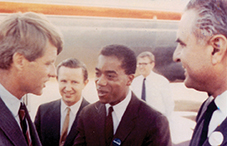
#28: Birth of Kwanzaa
In 1966, Professor Maulana Karenga created Kwanzaa to celebrate African heritage and promote community and cultural unity. Founded in the wake of the Watts uprising, the weeklong holiday highlights the values of family and self-determination. Karenga later established CSULB's Black Studies Department (now Africana Studies), one of the first in the nation.
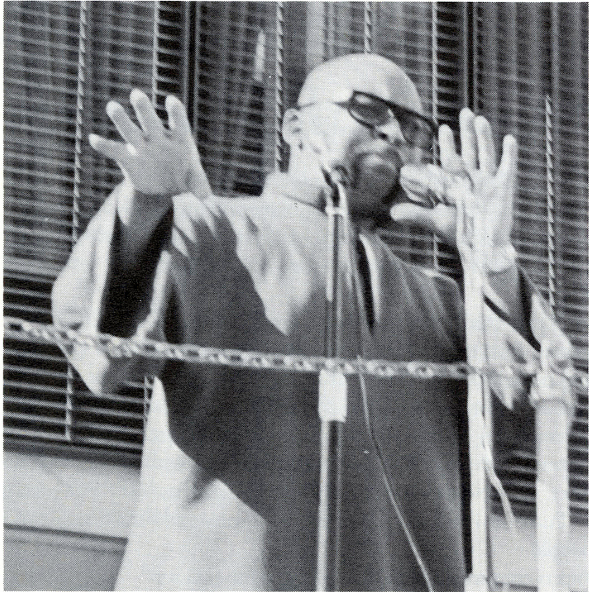
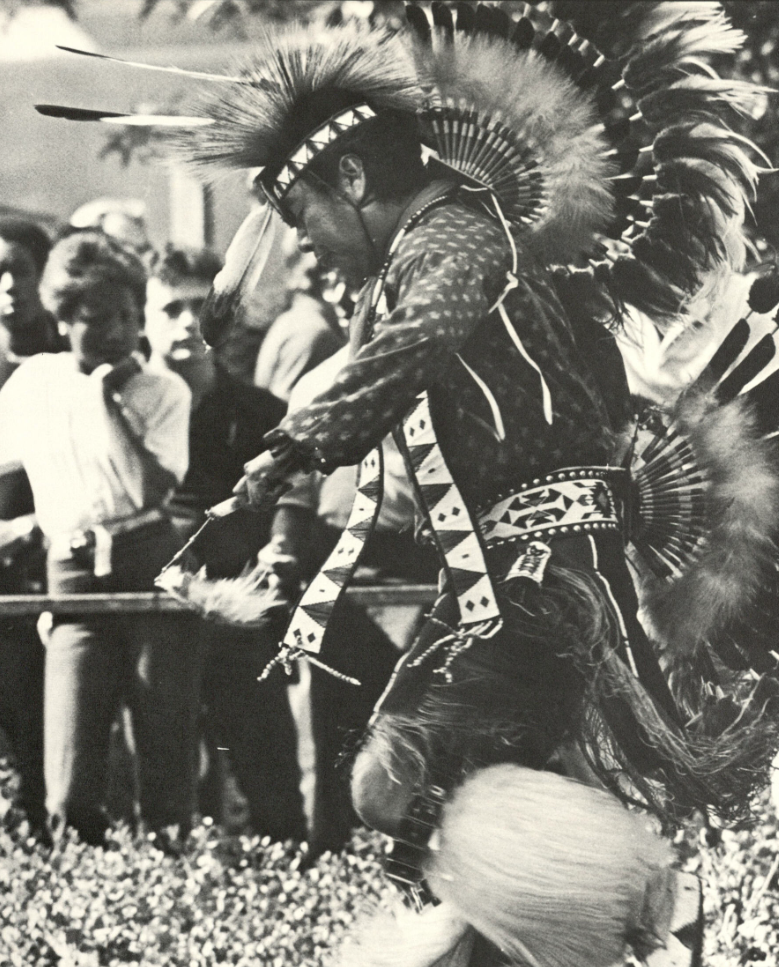
#29: Largest Pow Wow
In 1969, CSULB held its first Pow Wow to honor the Puvungna land (See #14) on which the university stands, beginning an annual celebration of Native American culture and traditions. Today, the CSULB Pow Wow is the longest running university-based powwow west of the Mississippi River.
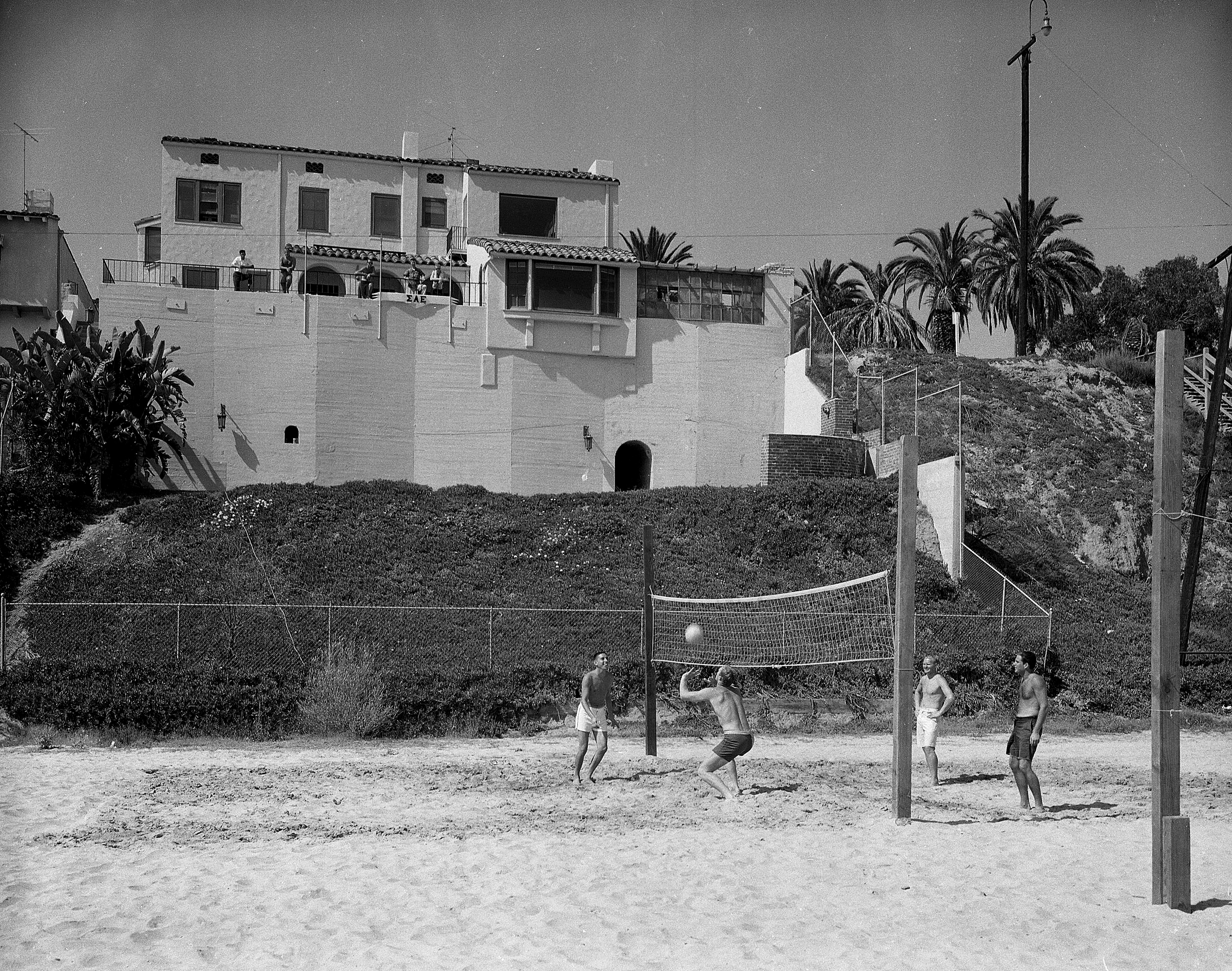
#30: Beachfront Fraternity
Although CSULB lacks a dedicated area for fraternity and sorority housing, many Greek organizations have secured off-campus homes throughout Long Beach. But perhaps none has been as impressive as Sigma Alpha Epsilon’s oceanview house, which overlooked a beach volleyball net where students would routinely play. Today, homes in that area are valued between $1.5 and $5 million.
#31: Campus Wedding
Carolyn Roller and Craig Hendricks ‘70 — who met and spent most of their time at CSULB — made history by holding their wedding beneath the campus’ last remaining olive tree in 1970. A memorable moment came when the best man spent a full minute searching his pocket for the rings, to the visible distress of the groom.
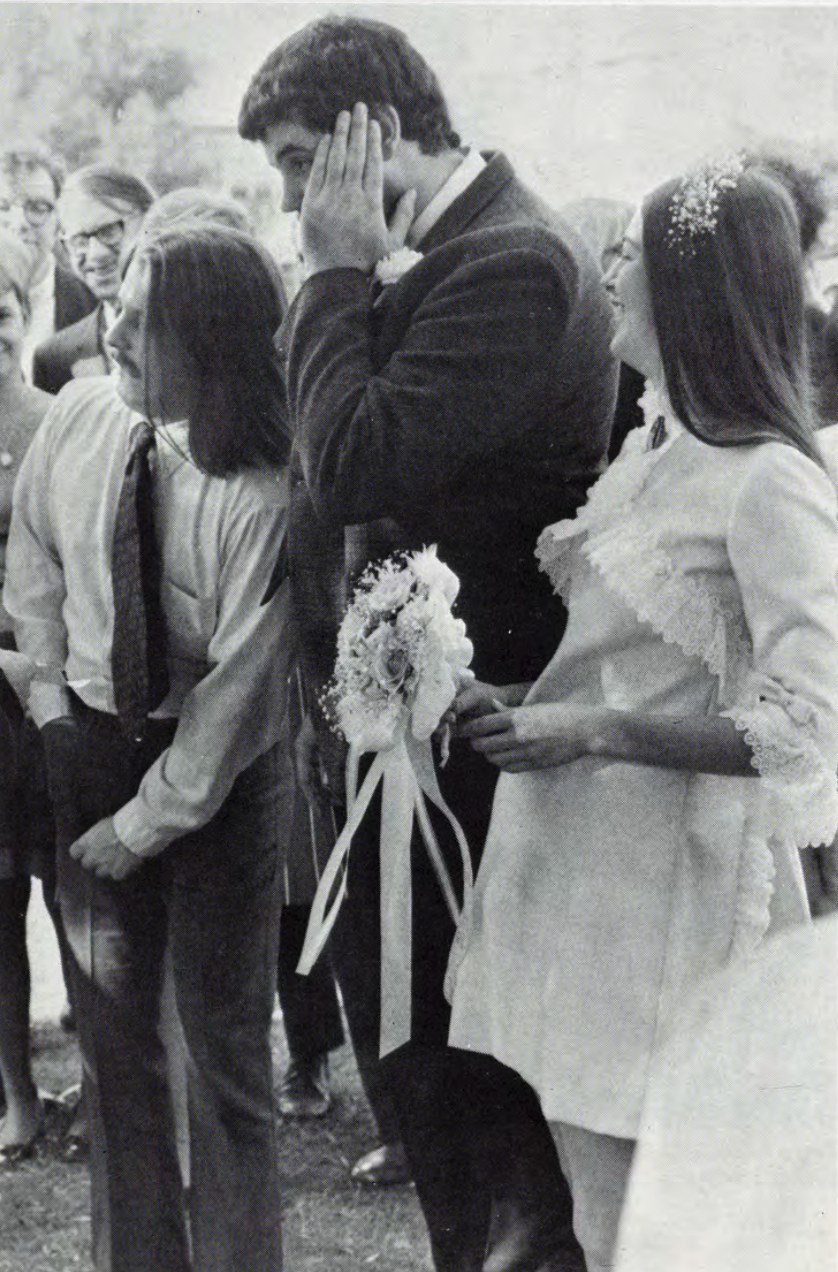
#32: Mobile Learning
In the 1970s, CSULB introduced "On the Go Video," a mobile video unit used to film educational content. The program helped pioneer early distance learning by bringing lessons directly to students and marked an important step in the university's commitment to accessible education.
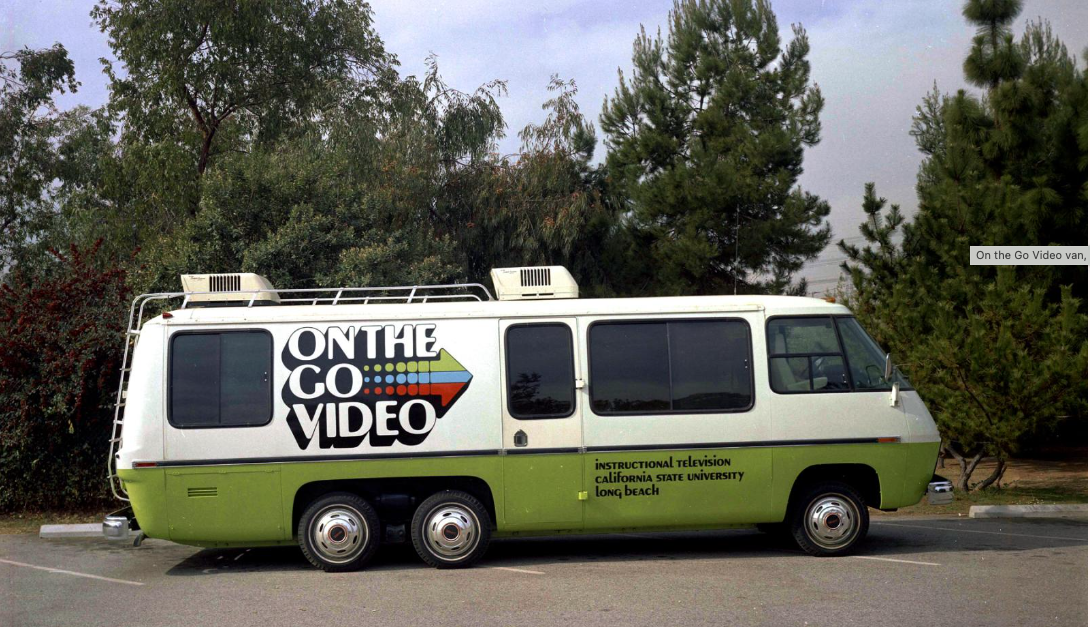

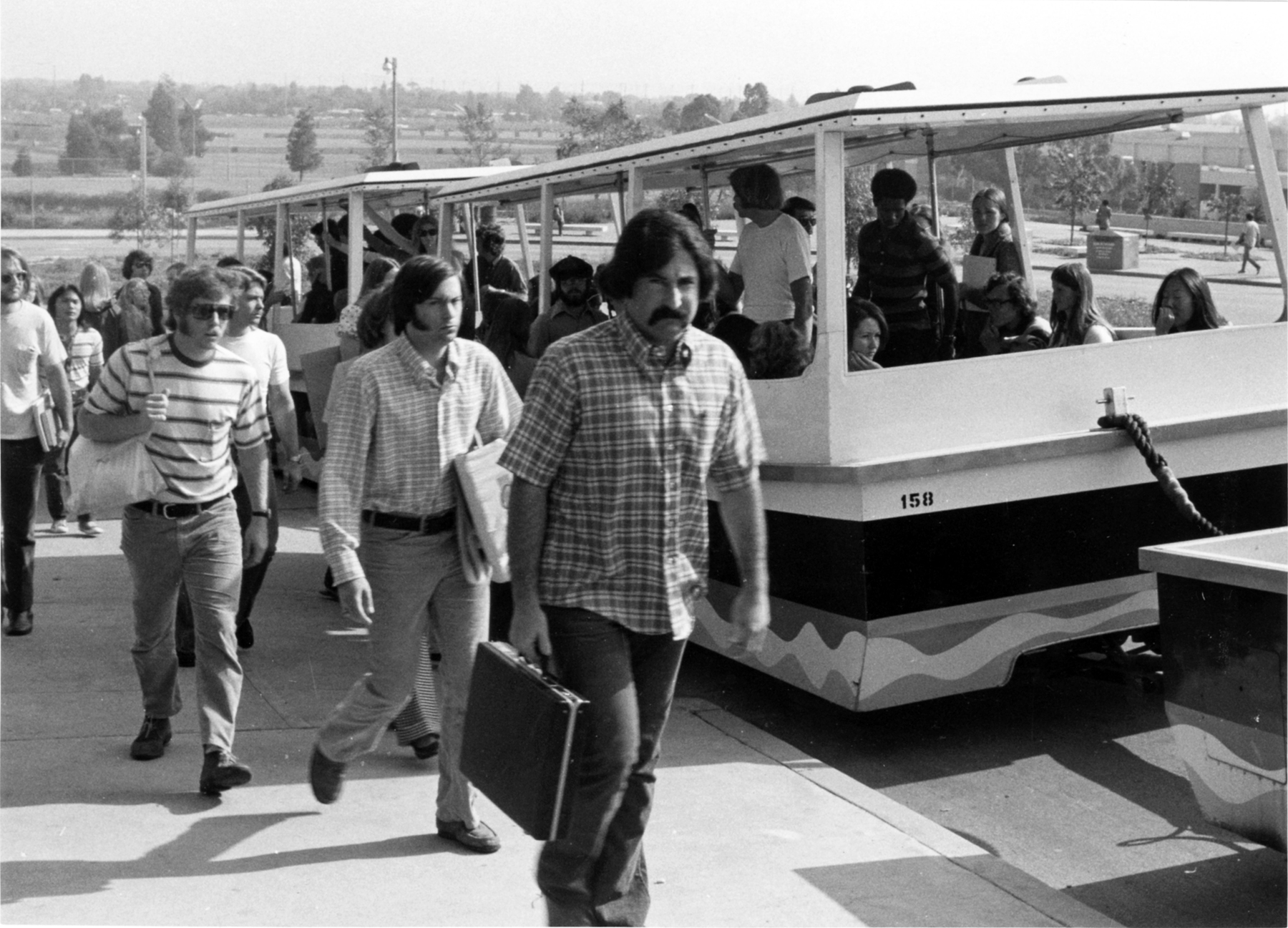
#33: 'Little Toot’
In the mid-1970s, CSULB’s boat-shaped tram, affectionately named "Little Toot," ferried students from lower campus to upper campus — a trek that had previously been dubbed "Cardiac Hill” because of its steep incline.
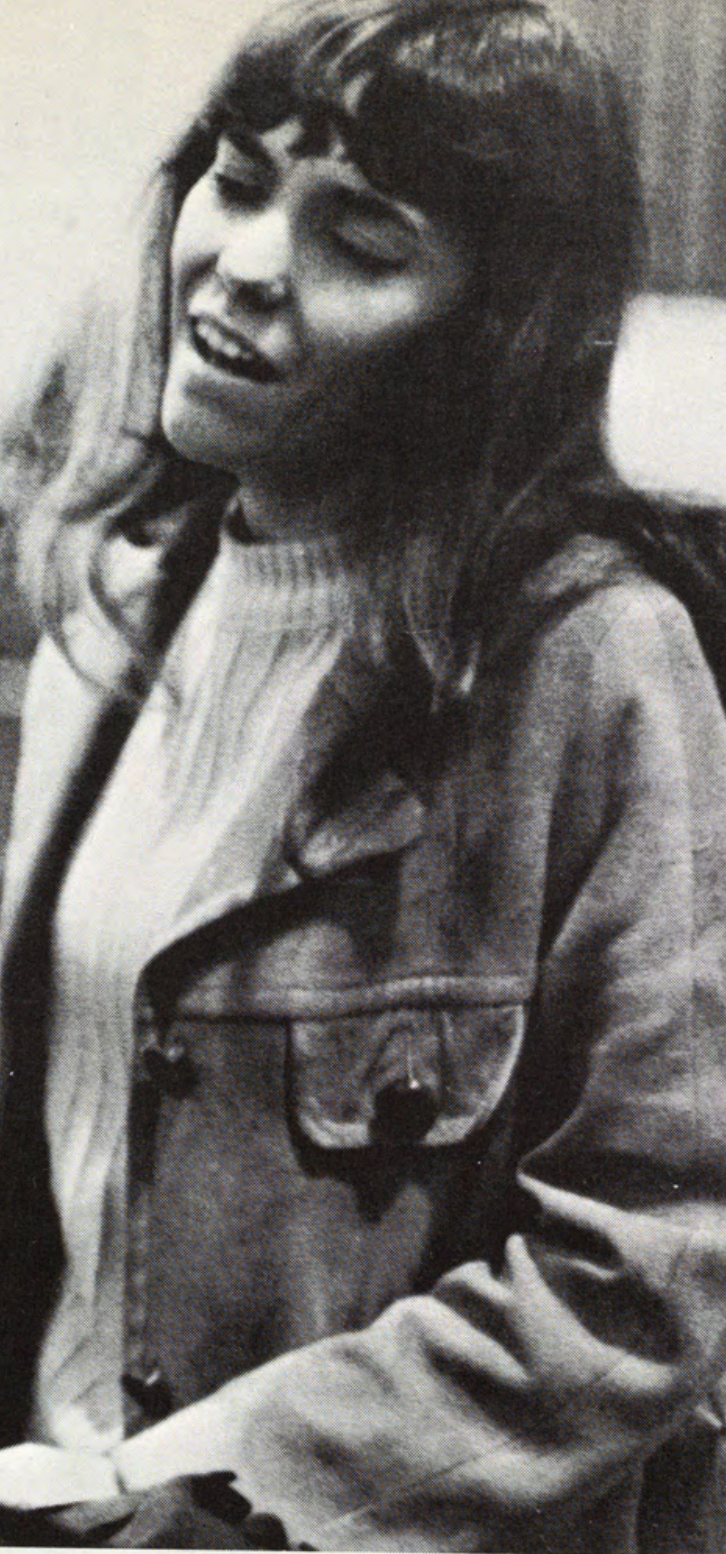
#34: The Carpenters
While studying at CSULB in the 1960s, Richard and Karen Carpenter formed a jazz band that evolved into the Carpenters. With hits like "(They Long to Be) Close to You," the duo softened the pop charts and gained worldwide fame. Their mentor, choral director Frank Pooler, was a key figure in their success, even co-writing one of their songs. Though Karen died in 1983 from anorexia, her drum kit is displayed in the Carpenter Performing Arts Center, which opened in 1994 to honor the siblings’ legacy.
#35: Iconic Bands
CSULB has a history of hosting iconic bands on campus. The Doors played here in the '60s, as did Jefferson Airplane, Chicago and Spirit. Sublime and No Doubt played in the ‘80s before they were world-famous. But the very first band to get major billing in a Long Beach State yearbook? That was the Nitty Gritty Dirt Band, a Long Beach group that performed in the quad in 1967. [Incidentally, both Sublime's Bradley Nowell and the Nitty Gritty Dirt Band's John McEuen attended classes here, as well.]
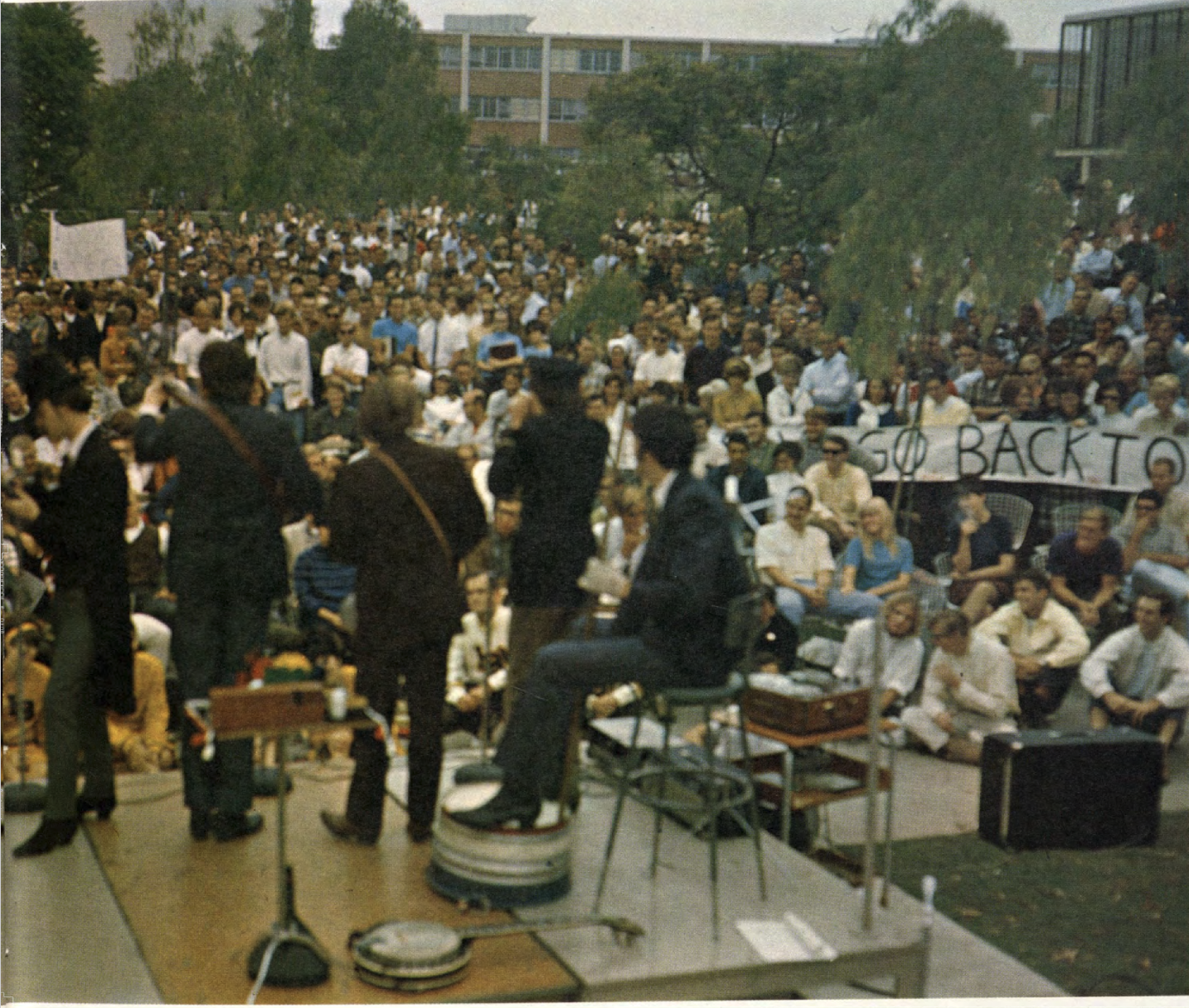
#36: Record-Breaking Sub
The Beach made “The Guinness Book of World Records” in 1978 by creating the world’s longest submarine sandwich. Prepared as fundraiser by members of the Pi Sigma Epsilon fraternity, the 513-foot sandwich was sold by the inch, with a contest to see who could eat the most. Winners received all the Alka-Seltzer they could drink. (Yes, seriously.)
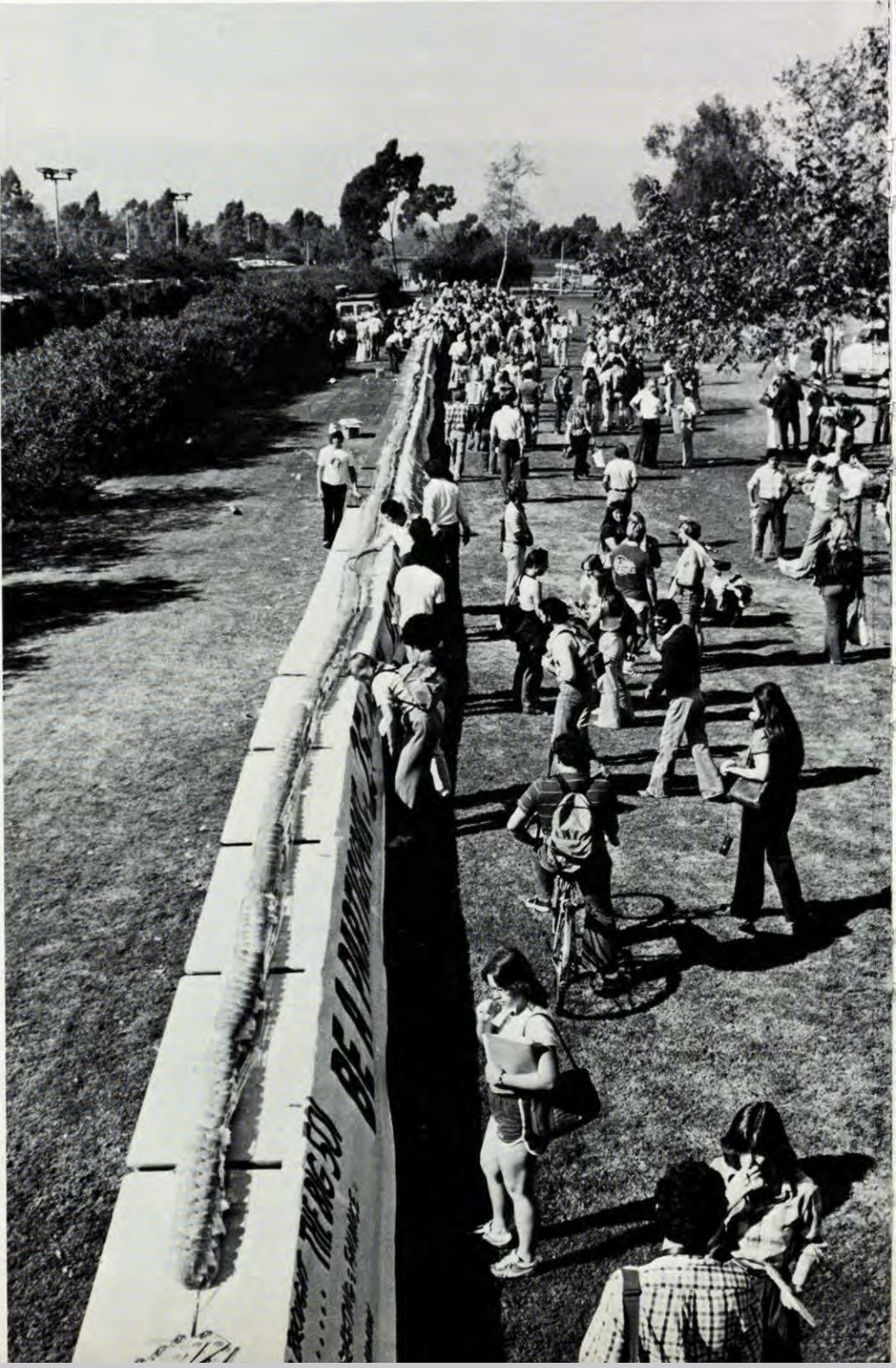
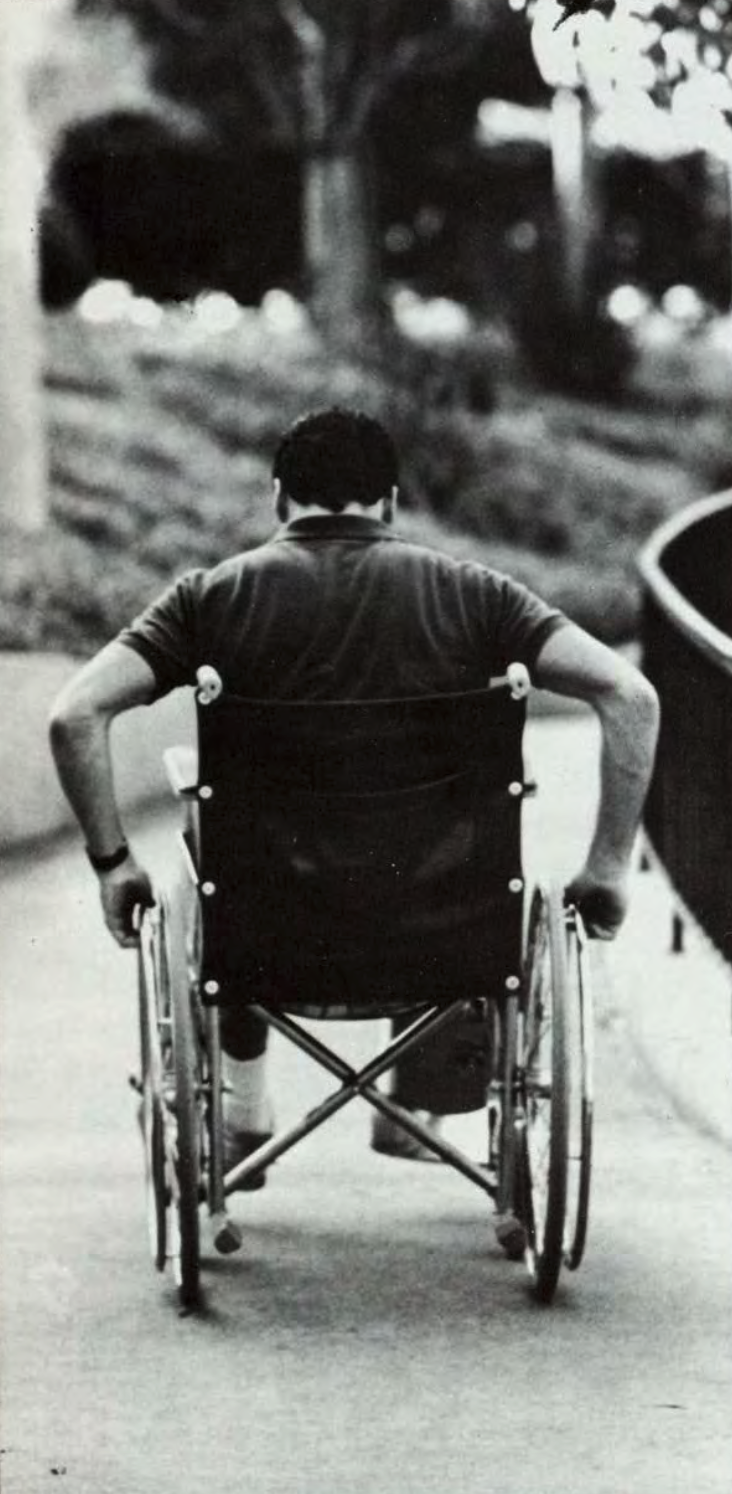
#37: Groundbreaking Accommodations
In 1973, CSULB became the first campus in the California State University system to establish a Disabled Student Services program. By 1980, it had introduced the Adult Learning Disabilities Program — the first of its kind on the West Coast. Today, the Bob Murphy Access Center continues to lead in providing accessibility services for individuals with disabilities.
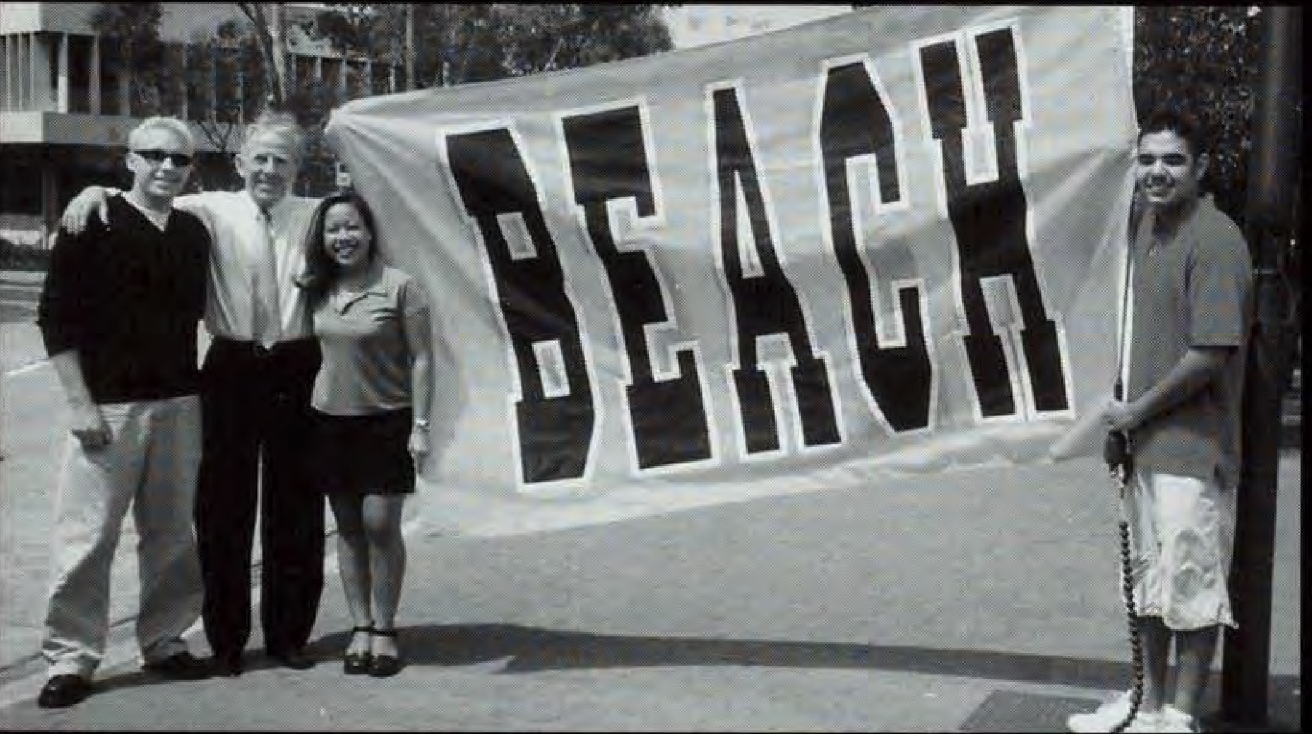
#38: 'Beach’ Identity
CSULB’s iconic “Go Beach” slogan was popularized by President Robert Maxson, who served from 1994 to 2006. With an assist from U.S. Rep. Robert Garcia ‘02, who served as ASI president at the time (and is pictured above at right), Maxson integrated the phrase into campus life — helping the university adopt the nickname “The Beach” and shaping its modern identity.
#39: Rare Pyramid
Completed in 1994, Long Beach State’s sports complex is one of four true pyramids in the country, along with Las Vegas’ Luxor, Salt Lake City’s Summum Pyramid and the Pyramid Arena in Memphis, Tenn. With seating for 5,000 spectators, the striking blue structure was renamed the Mike and Arlene Walter Pyramid in 2005 after a generous donation from the CSULB professor and his wife, both longtime supporters.

#40: 'This is My Jewelry’
Real estate tycoon Isabel Patterson ‘51 donated millions of dollars to the university over the years, funding everything from scholarships to CSULB’s Isabel Patterson Child Development Center, which ensures affordable childcare for student parents. Known for her generosity and humor, Patterson once left a room where some wealthy friends were showing off their jewelry and discussing the cost of each item; when she returned, she was wearing an “I love Isabel” T-shirt decorated by a bunch of grateful students. "This is my jewelry," she said.


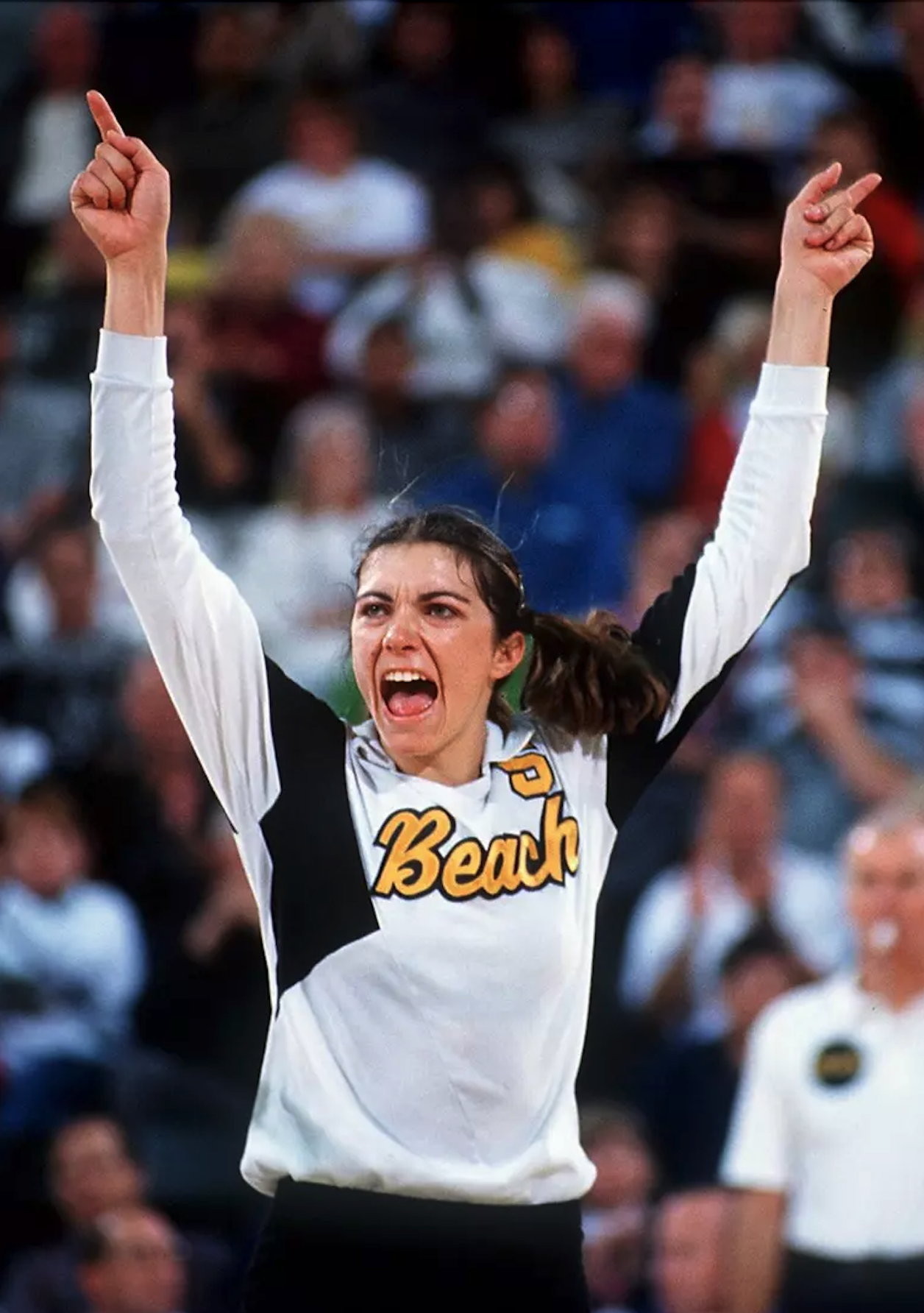
#41: Misty’s Pigtails
Led by the legendary Misty May ‘02, the women’s volleyball team at Long Beach State completed a perfect 36-0 season in 1998, capturing their second NCAA Championship. So popular was May that some fans, including middle-aged men, showed up to games with their hair in pigtails to match May's signature look. May’s leadership sparked a volleyball dynasty and helped launch her career as a three-time Olympic gold medalist in beach volleyball.
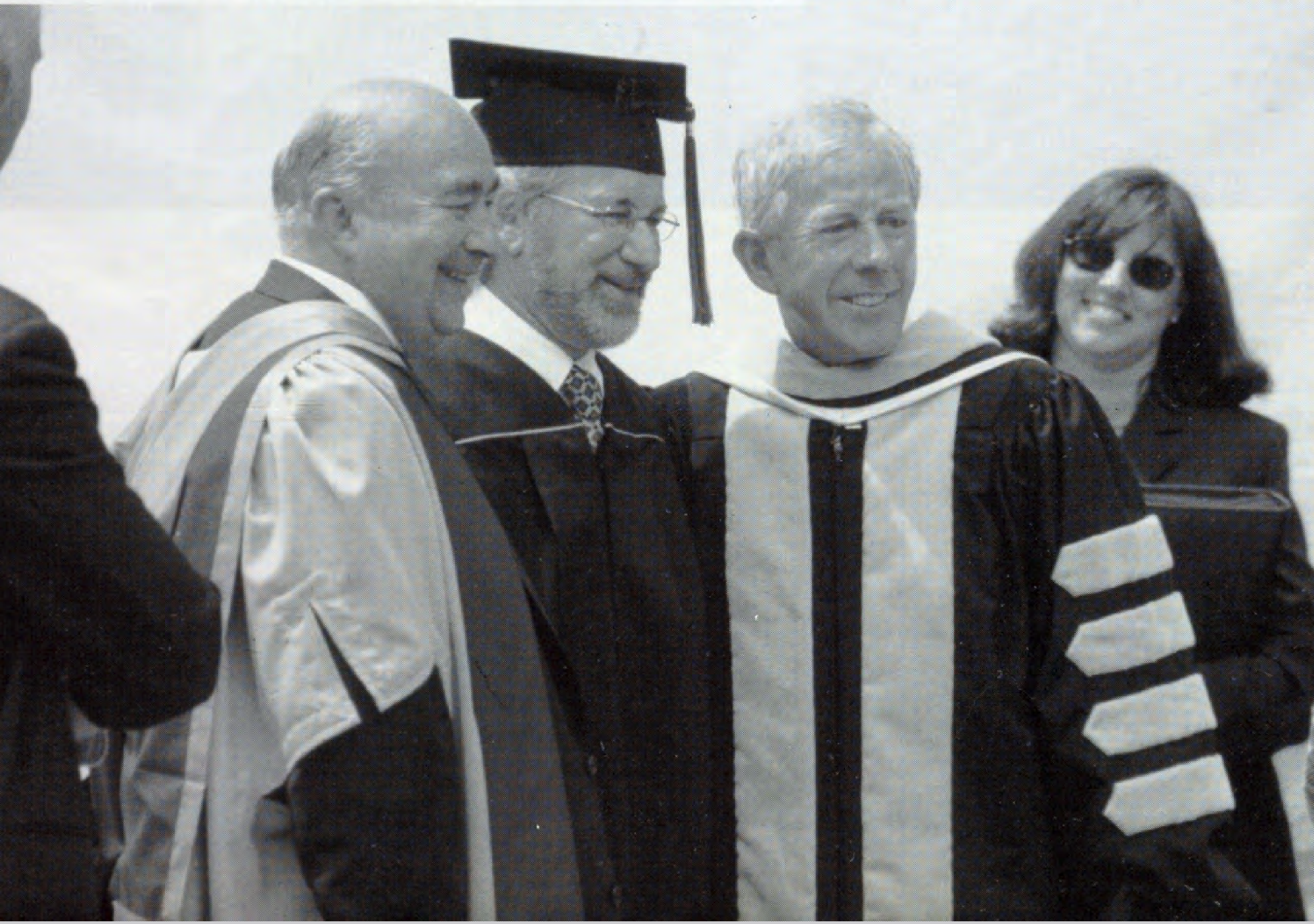
#42: Oscar-Winning Final
After leaving college early to pursue filmmaking, Steven Spielberg ’02 returned to Cal State Long Beach decades later to finish what he had started. Enrolled in Natural Science 492, he kept a low profile, writing a term paper to fulfill his course requirement. Although all film students must submit a final film project to graduate, the university gave Spielberg a waiver, accepting "Schindler’s List" instead. As the filmmaker made his way across the stage to receive his diploma in 2002, the theme song from "Raiders of the Lost Ark" played in the background.
#43: Baseball Greats
Twenty years after dominating Blair Field as a player for the Dirtbags, "Friday Knight" Jered Weaver —who had gone on to have a standout career with the Los Angeles Angels — became the first Long Beach State baseball player to have his jersey retired. Other standout baseball players include Jason Giambi and Steve Trachsel.
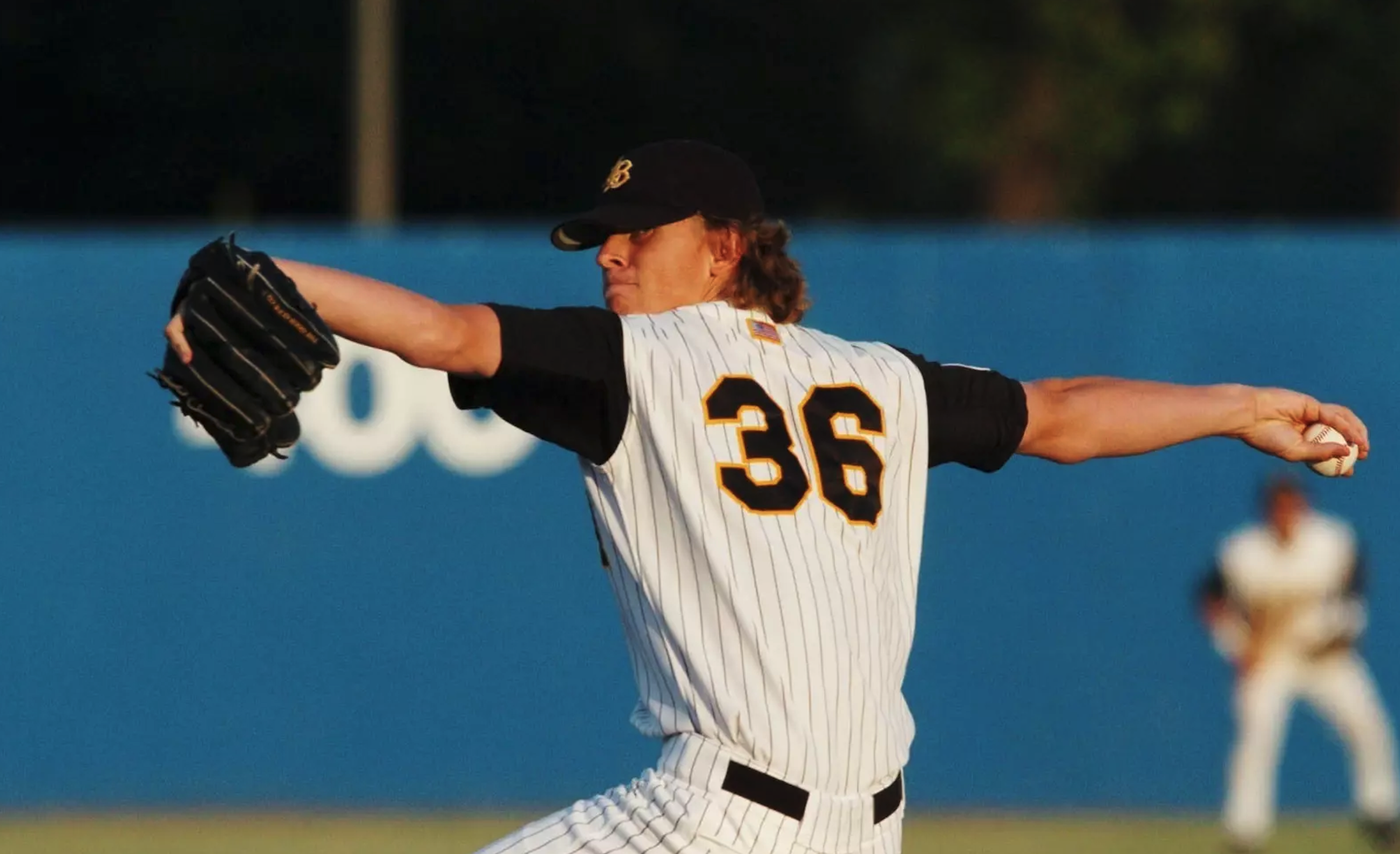
#44: Kung Fu Sculpture
Jennifer Yuh Nelson '94 made history as the first woman and first Asian American to solely direct a major animated film with "Kung Fu Panda 2." Following her Oscar nomination, Dreamworks gifted a statue of Master Po to the School of Art, where Nelson studied to become a storyboard illustrator.
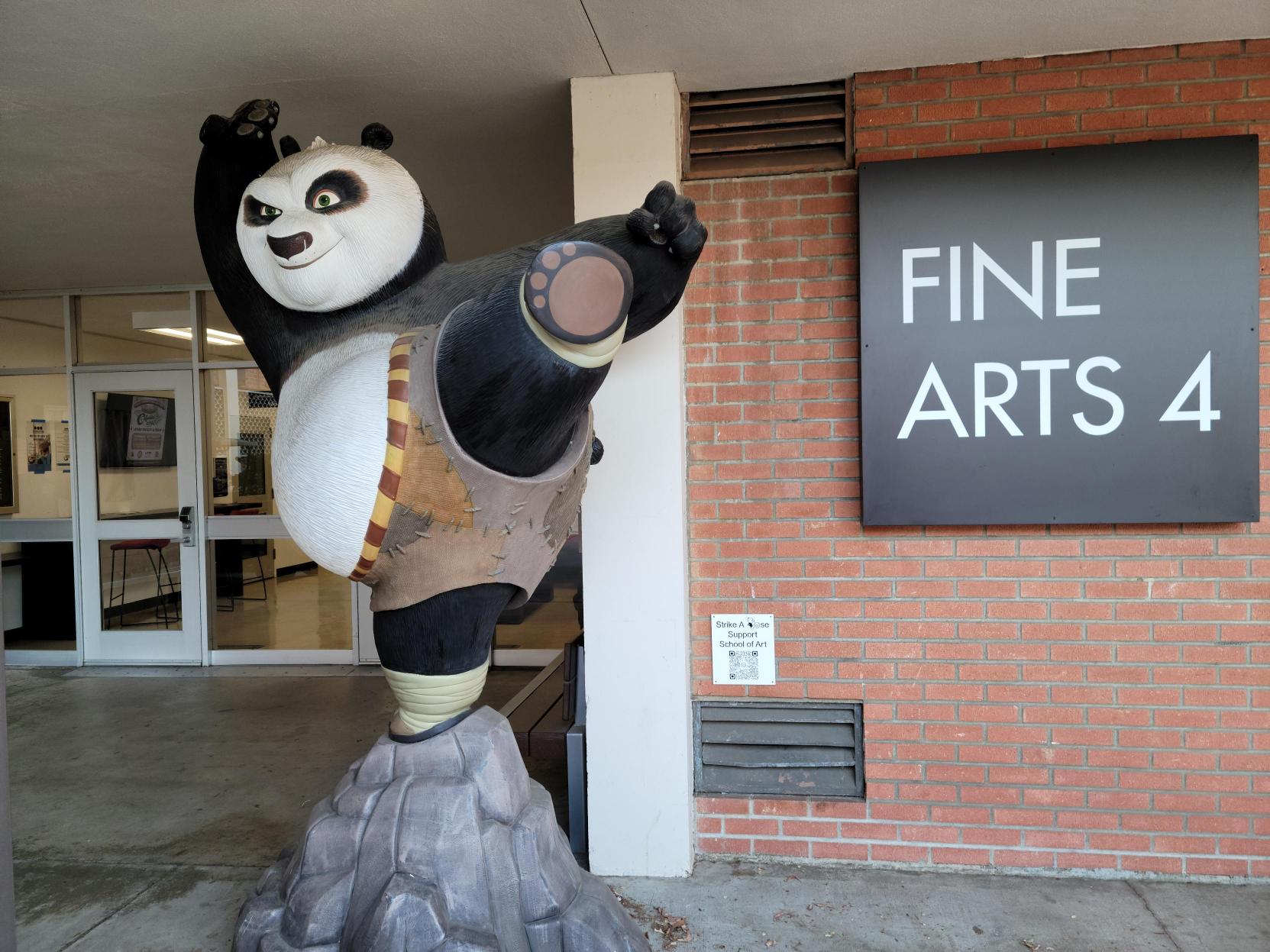
#45: Life-Changing Degrees
In 2023, CSULB was ranked #1 among national universities for promoting social mobility by U.S. News & World Report, a clear indicator of the university’s success in helping students from diverse and disadvantaged backgrounds change the trajectory of their lives, families and communities.
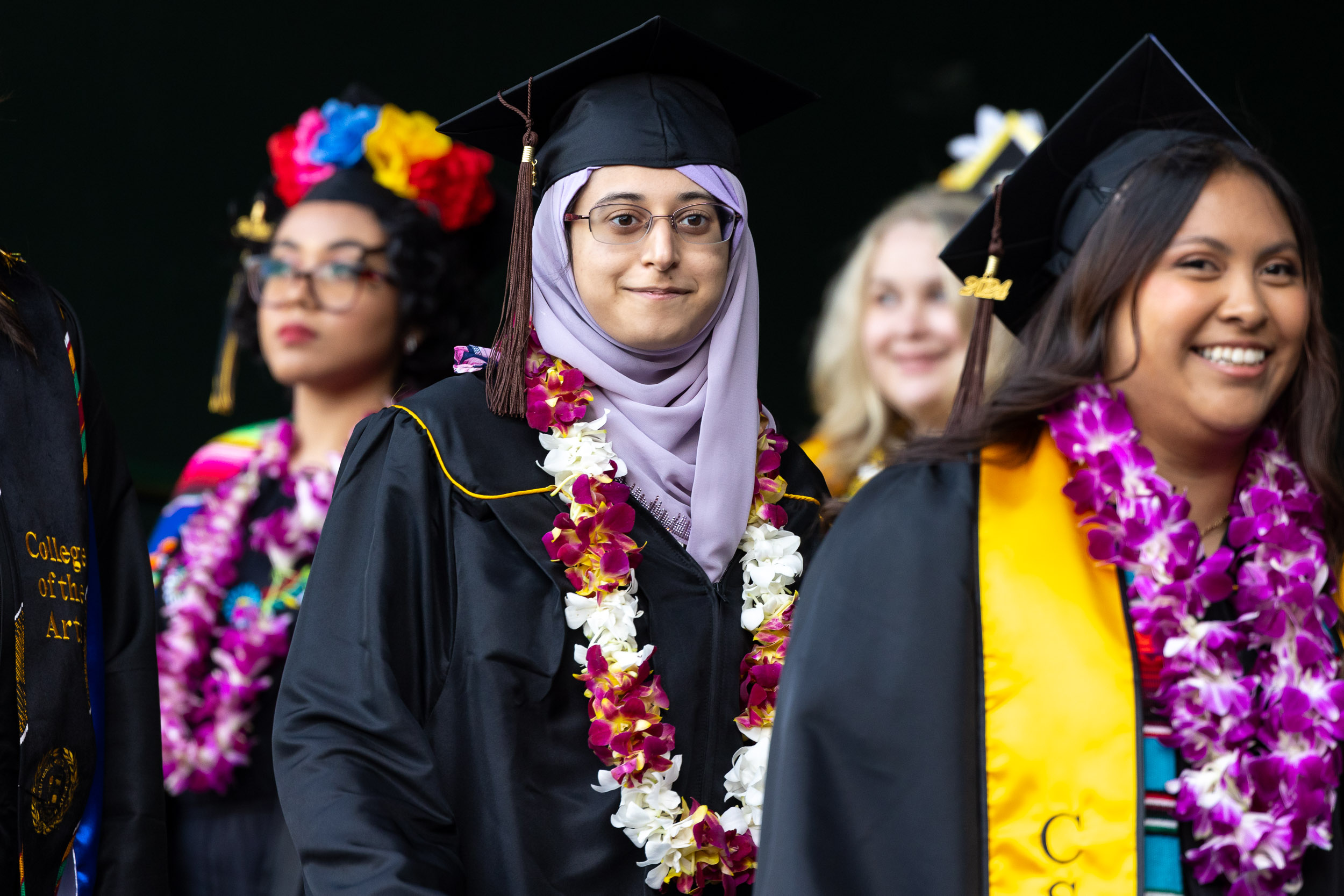
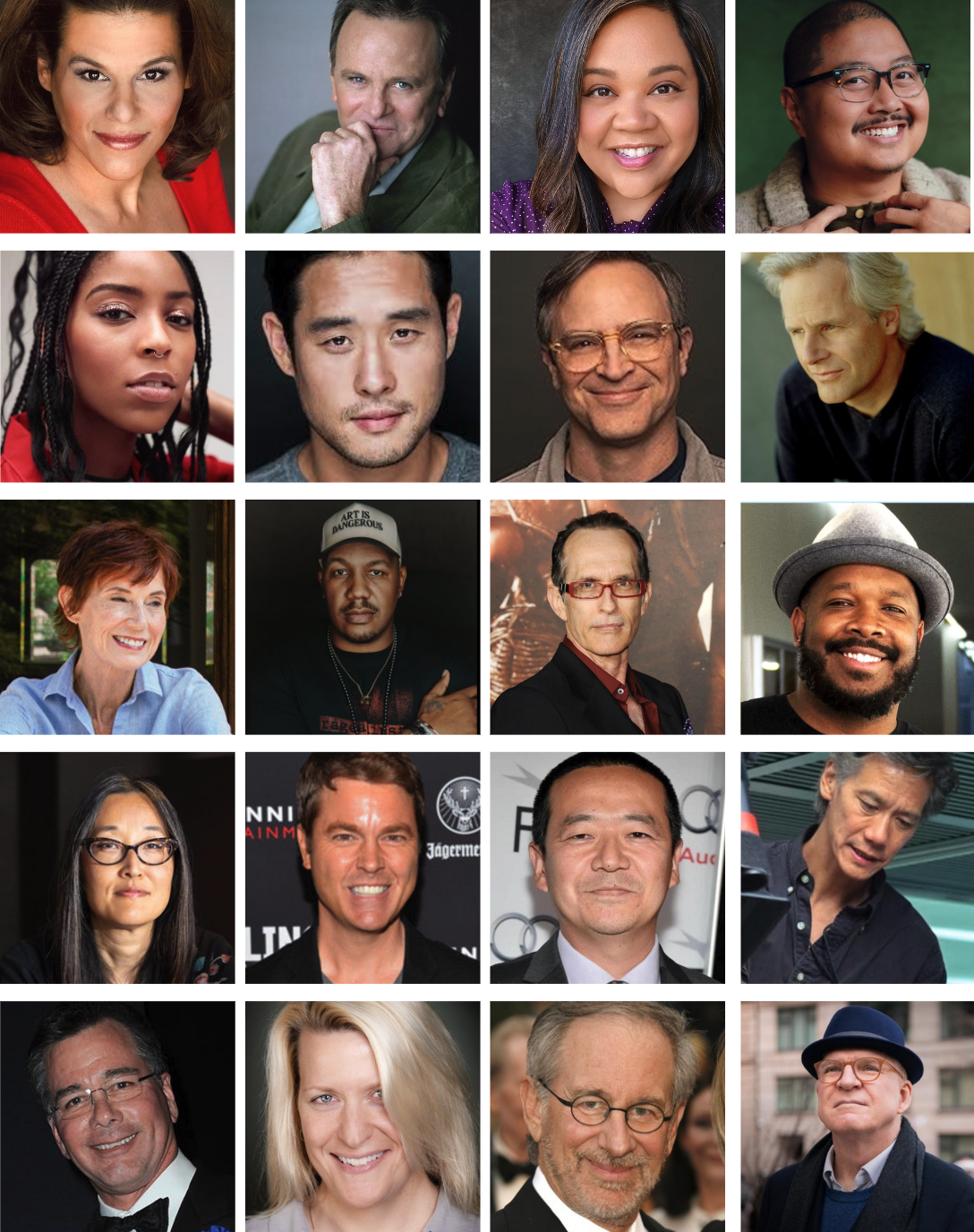
#46: Hollywood Launchpad
Cal State Long Beach — particularly its Cinematic Arts program — has nurtured and produced numerous Hollywood talents, from actors and writers to storyboard artists, costume designers and cinematographers, many of whom have achieved fame and even won Oscars. These prominent alumni include, but are not limited to those pictured above (top to bottom, left to right): Actors Alexandra Billings '13 (Never Have I Ever, Transparent), Robert S. Woods '74 (One Life to Live), Ellen D. Williams '02 (Baskets, How I Met Your Mother), Jason Rogel '00 (Kevin From Work, The Office), Jessica Williams (Shrinking, Fantastic Beasts), Raymond Lee '08 (Kevin Can F**k Himself, Quantum Leap) and Matt Gourley '98 (Drunk History); Writers Chris Carter '79 (The X-Files), Linda Woolverton '74 (Beauty and the Beast, The Lion King), Travon Free '07 (Two Distant Strangers), and David Twohy '78 (The Fugitive); costume concept artist Phillip Boutté, Jr. '07 (Black Panther); storyboard artist Jennifer Yuh Nelson '94 (Kung Fu Panda), director Mark Steven Johnson '89 (Daredevil), cinematographers and camera operators Masanobu Takayanagi '00 (Silver Linings Playbook), P. Scott Sakamoto '81 (The Irishman) and Gregory Irwin '82 (Joker); sound editor Karen Baker Landers (Skyfall); and, of course, two legendary Steves: Spielberg '02, and Martin.
#47: Pulitzer-Prize Winners
A number of impressive reporters have graduated from The Beach, some of whom have won the Pulitzer Prize. Michael Anastasi '01, for example, received a 2015 Pulitzer Prize for local reporting while working for the Daily Breeze; and, most recently, journalist Caitlin Dickerson '11 won a Pulitzer in 2023 for her reporting on the impact of deportations and family separations at the border.
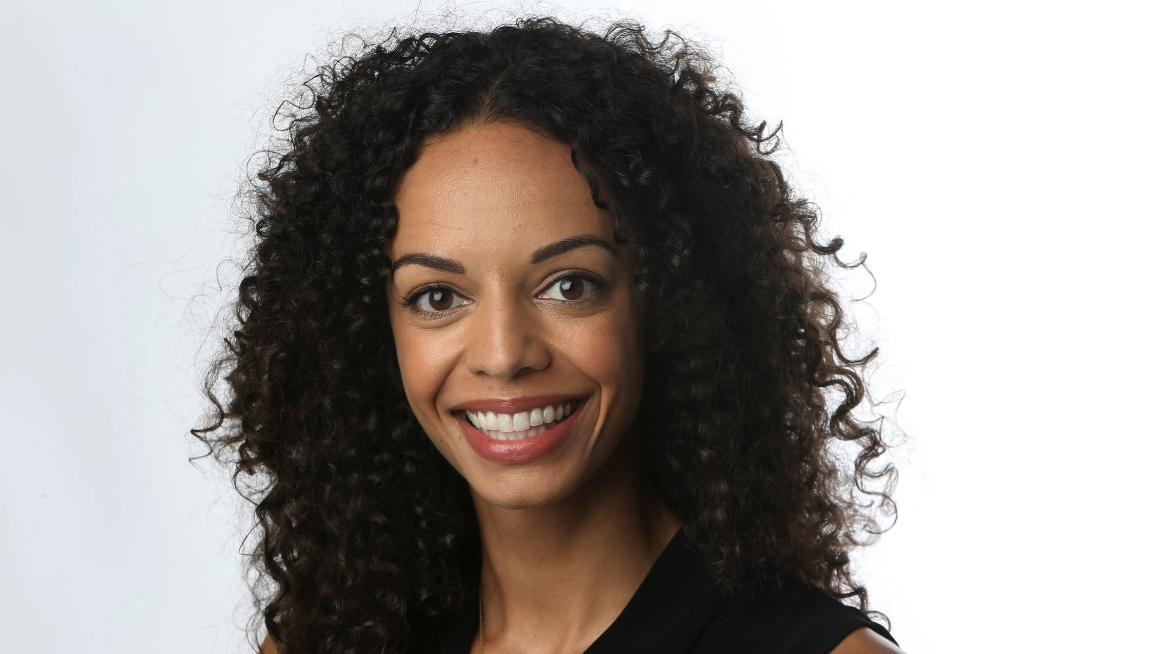
#48: 'High Research Activity'
In 2022, CSULB was classified as a "Doctoral University with High Research Activity" (R2) by the Carnegie Classification of Institutions of Higher Education. The university has made notable advancements marine biology, environmental science and engineering, among other fields.
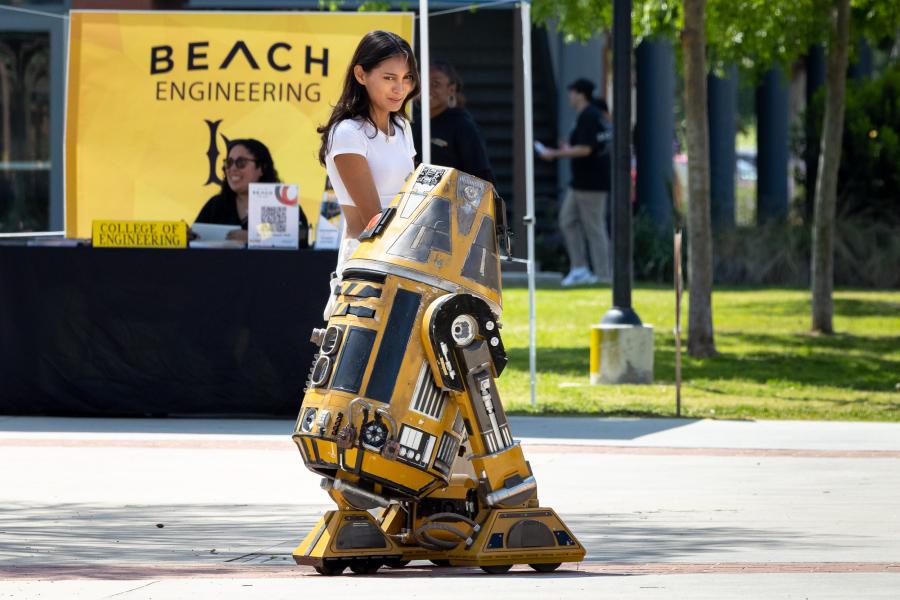
#49: Leading Latine University
CSULB is among the top universities in graduating Hispanic students. The Beach enrolls more than 15,700 Hispanic or Latine-identifying students, or about 48% of its student body. The university also received the 2023 Seal of Excelencia for its commitment to Latine students.

